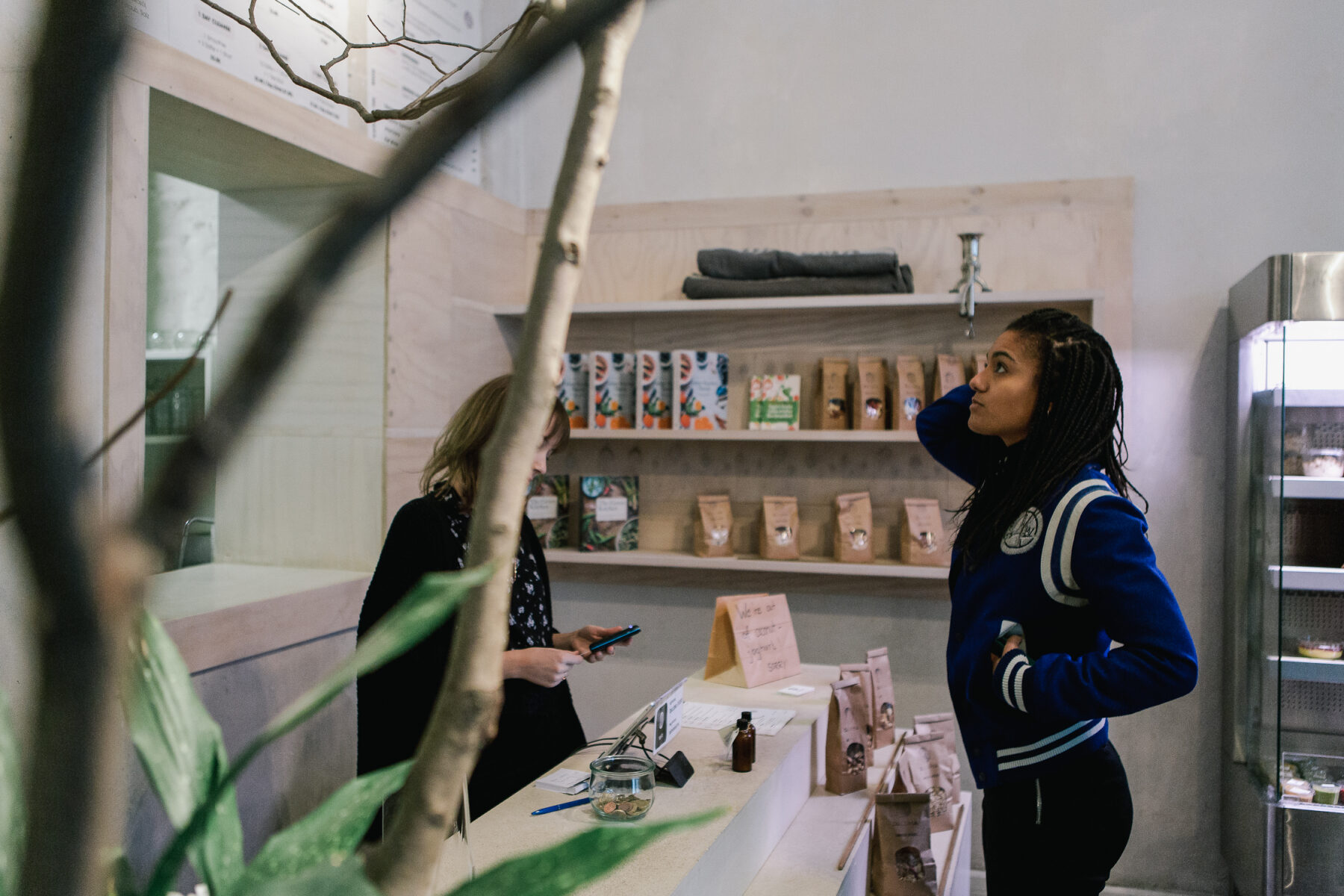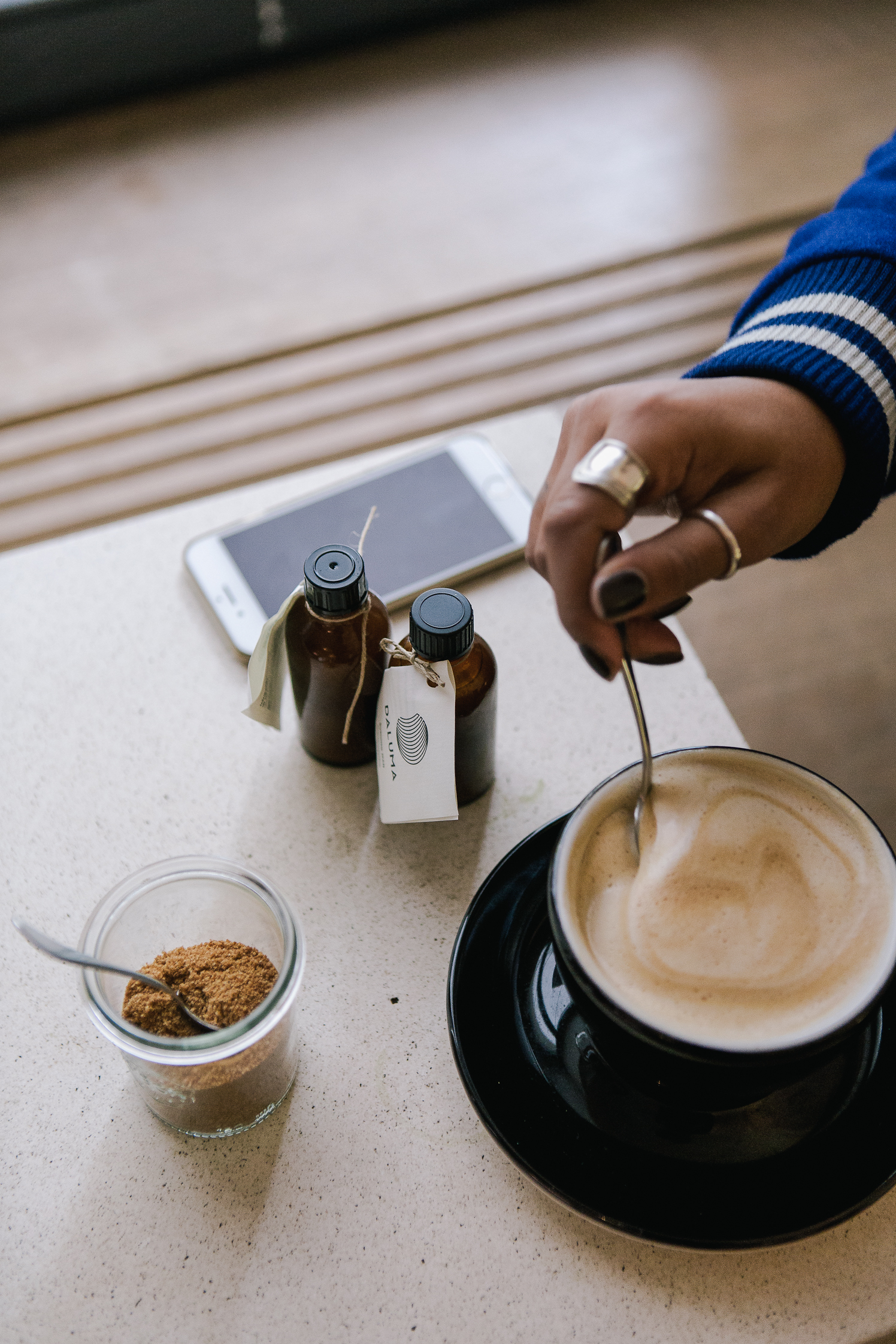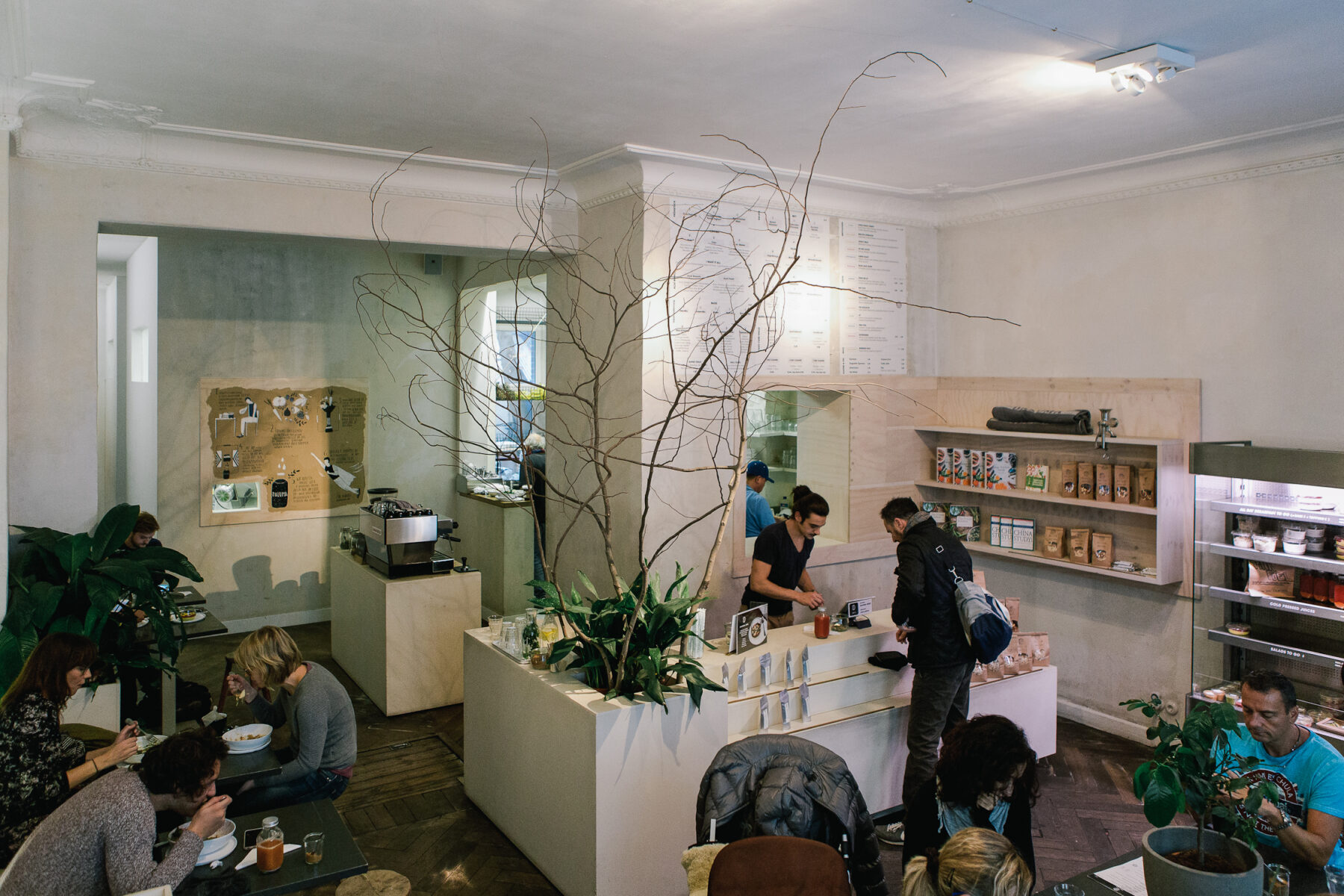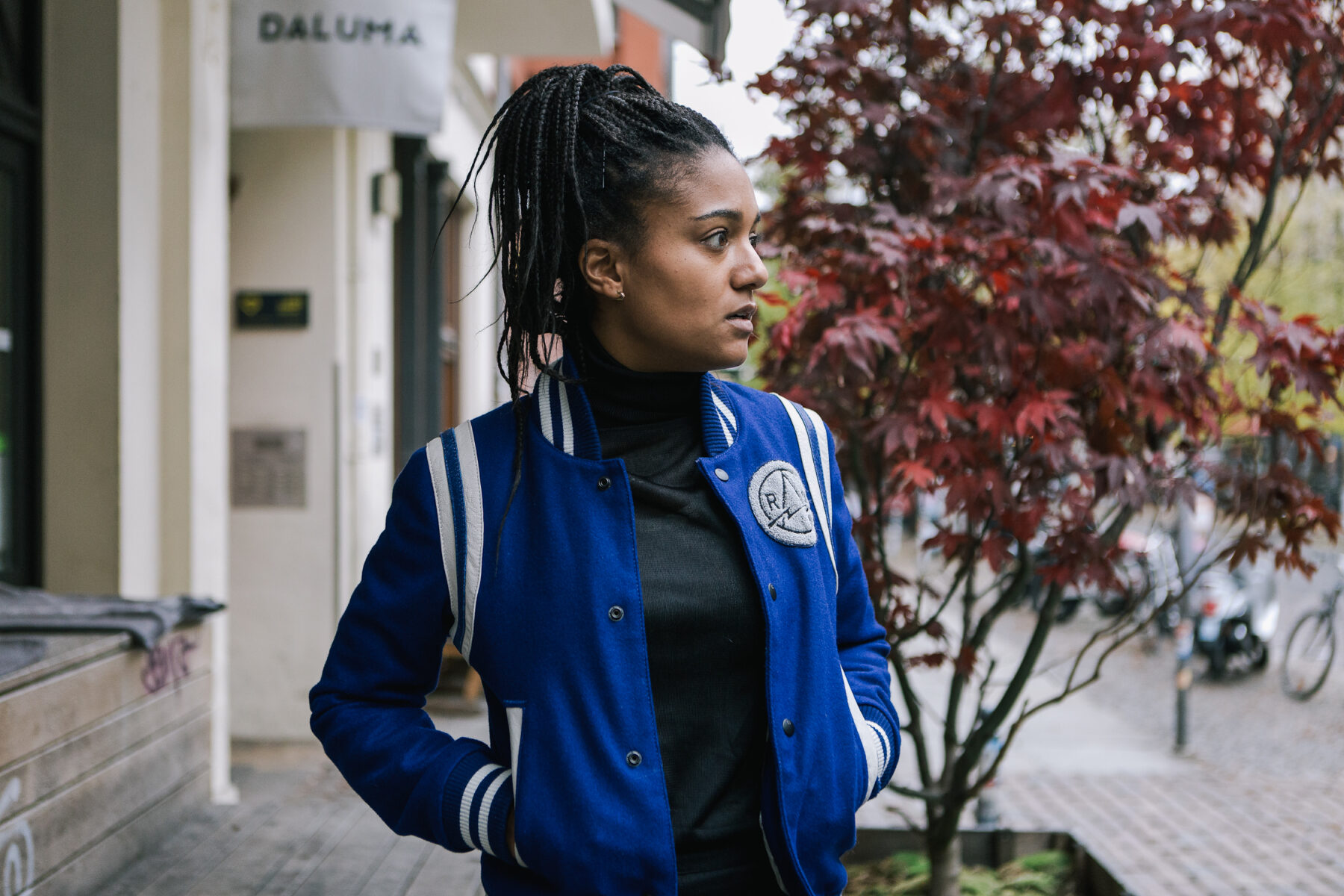Not giving a damn is serious business. In an industry where women are a dish best served sans clothes, singer Lary carries on unfazed.
With nothing but raw talent and two raised middle fingers to guide her, the Gelsenkirchen native has clawed her way to the top ranks of Germany’s must-hear musical newcomers without compromising an ounce of her vision.
German hip hop legends like Curse and Jan Delay were the ones who first took note of Lary a few years back, catapulting her onto the industry’s map with epic force. Since then she has shared the stage with the Fantastischen Vier, recorded and released her first album, and won the New Music Award of 2014.
Her poppy, soul-inspired, yet entirely indefinable look and sound has gained Lary a following faster than it takes lesser artists to sell their souls by the pound. All the while she has stayed true to her rebellious nature which often stops her life from being quite so simple. It’s not without reason that she’s been nicknamed “Hit Stopper” by her own production crew.
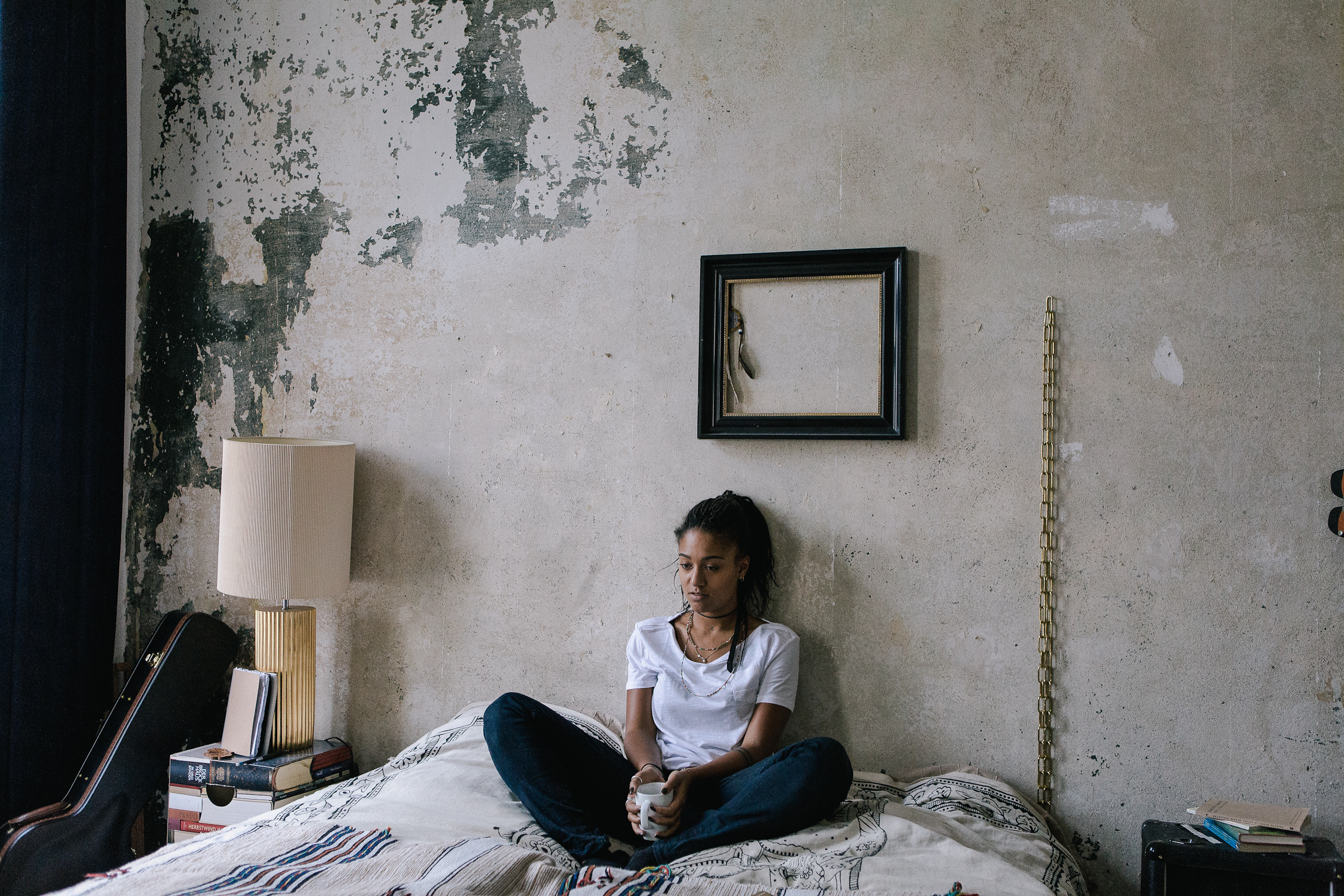
From the eclecto-nostalgia of her Berlin Mitte home to the energy with which she fills her Funkhaus rehearsal space, Lary carries an air of empowerment, tinged with a genuine vulnerability that only artists can bring to life and stage. Over coffee and a hearty bowl of vegan lunch, she chatted about the impact of crazy uncles, feeling at home on stage, questionable industry morals, and the necessity of a healthy dose of “fuck it all.”
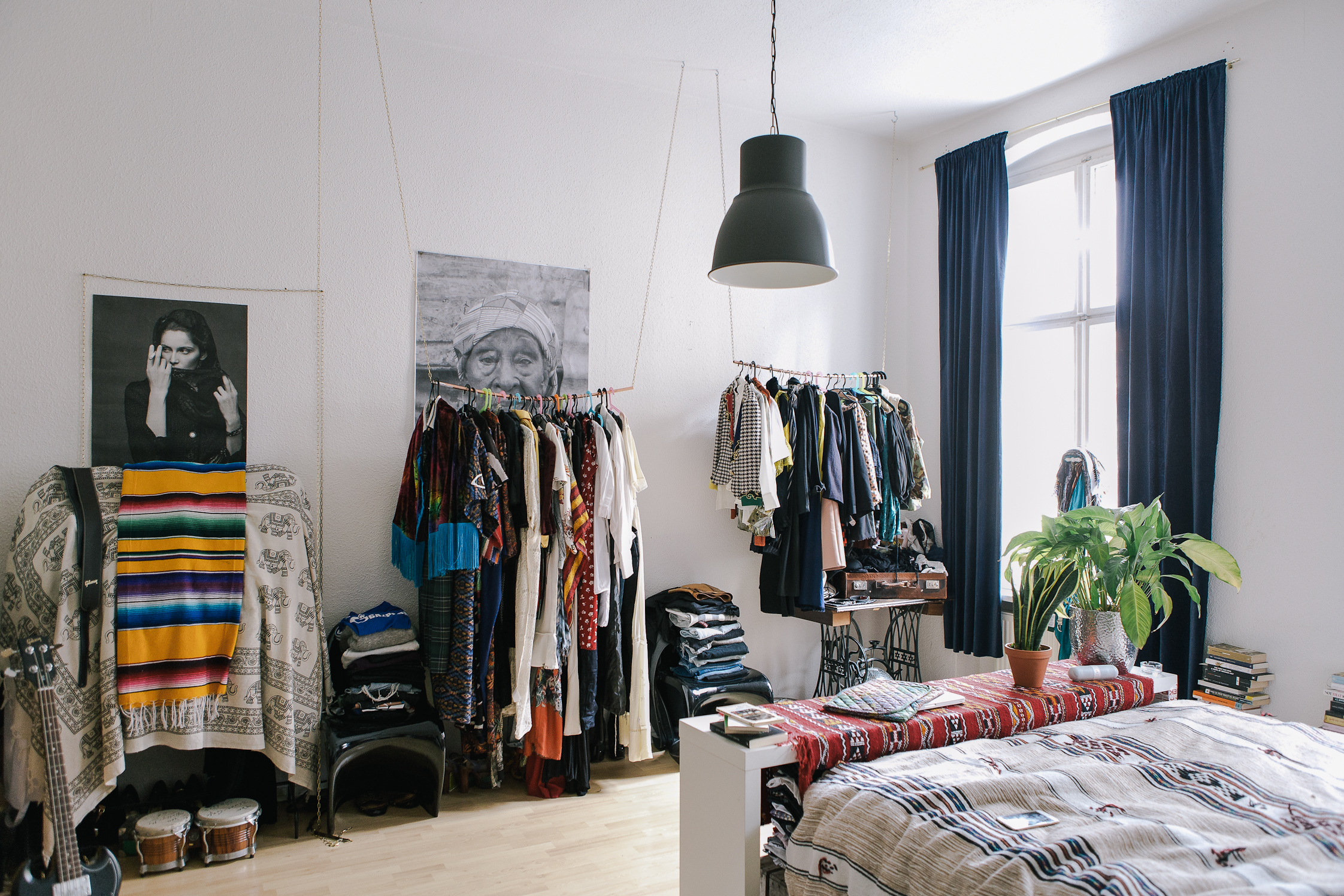
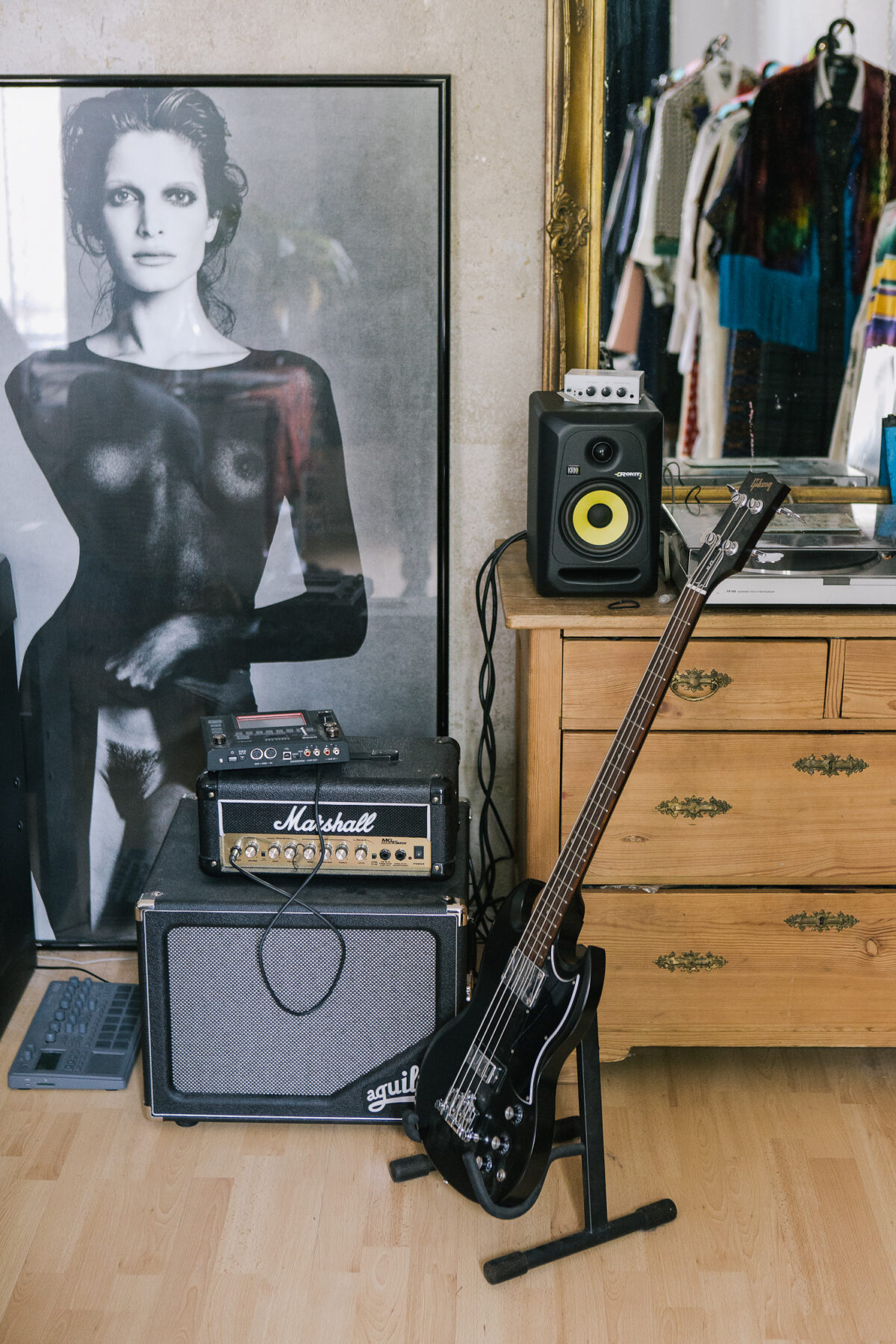
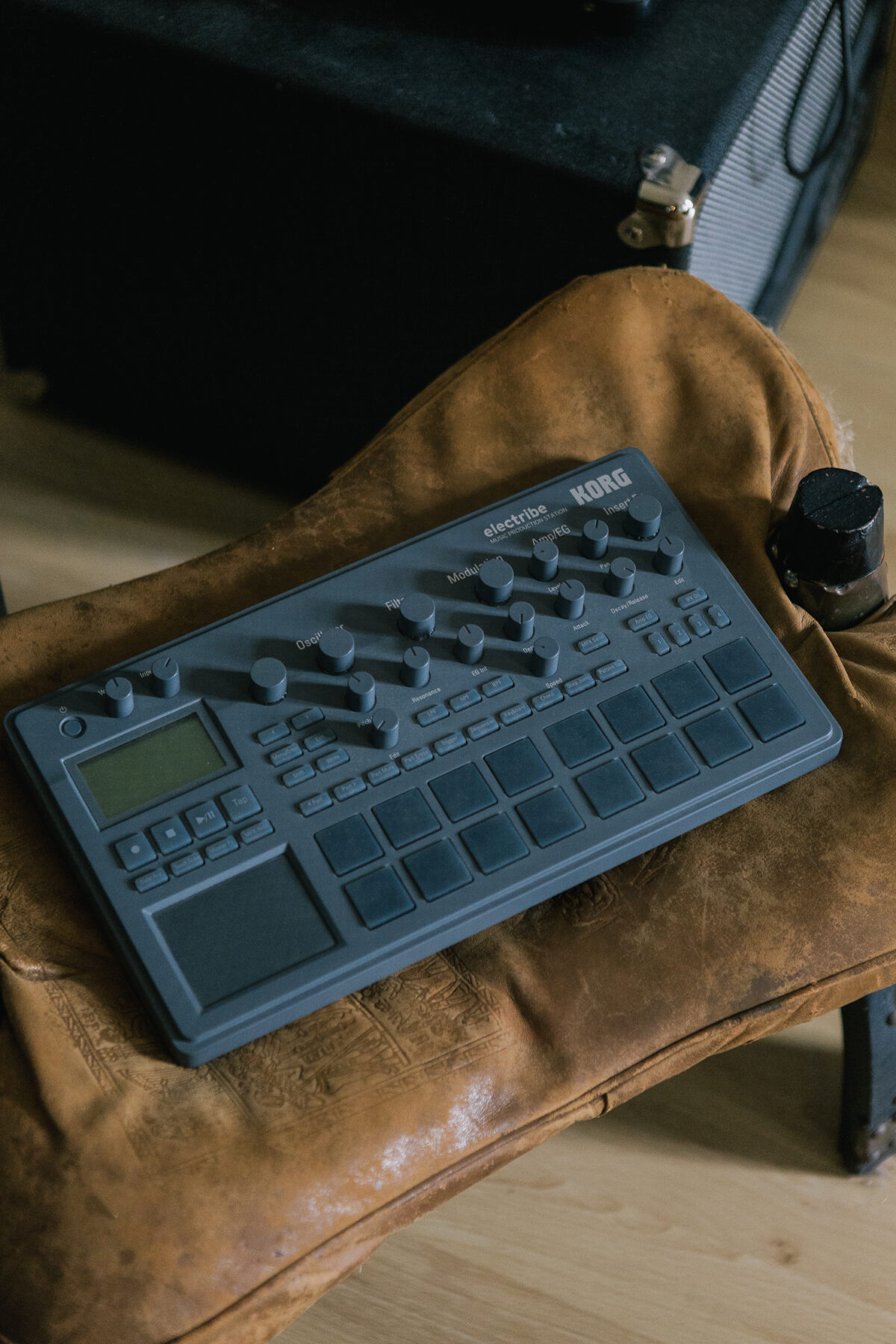
-
Tell us about your family – are they artistic and can they relate to what you’re doing?
Not at all. My mom works for Deutsche Bank (laughs). Thing is, I grew up in a large house with all of my mom’s side of the family: my uncle, my cousin, my grandma, my mom, and stepdad in one big house. Every door was always open, and everyone would talk to everyone. I was the only child in the family at that time, so everyone would come to every single one of my performances. My family was and is super supportive. But the only really creative person is my uncle, and he’s probably the person I am most similar too. He’s an absolutely crazy person. He climbed mountains and wrote a book – he does everything. My uncle was and still is the greatest influence on my life – also musically.
-
How would you describe those influences?
Family-wise, I was really influenced by ‘60s music – a lot of Stones, Doors, Janis Joplin, Led Zeppelin. That’s the kind of music I grew up on. My uncle used to make me memorize the lyrics for pocket money. He would give me a song and say, “Okay, this is a song by the Stones called ‘Sympathy for the Devil.’ You remember the lyrics, come back to me, and I give you 20 DMs.” That was my music education. My uncle was really into educating me, trying to communicate what he thought was important to know. I know a lot of weird shit because of him, but I also know a lot of cool stuff. Later there was some punk rock stuff. Then, through school and pop culture, some hip hop and soul music from the ‘90s. I’m a little too young for the real ‘90s stuff – all the cool shit came out before my time.
-
How and when did you get into making music?
It just happened. I was always into music and the performing arts. First it was musicals. I saw those people on stage, and I decided that’s what I wanted to do. When I was ten or 11, we had this huge musical in Essen – Joseph and the Amazing Technicolor Dreamcoat – it’s a Broadway musical, and they have a couple of kids’ roles. They had a casting call in the newspaper. My mom didn’t even know I applied. So I went there, got the part, and did that for a while. Then, at some point, I started playing in cover bands. I would play with my uncle’s friends in Minden. They had a motorcycle club with a band. One day, one of the guys in that band went to Curse – who used to live in Minden at the time – and told him, “We know this girl who sings with us, and you should really check her out.” That’s how it all started. So I wrote him an email. That was around the time I was graduating high school. We met up and I started writing songs. He started mentoring me, I guess. Musically with the songwriting – taking me on tour, but also personally, he just taught me a lot.
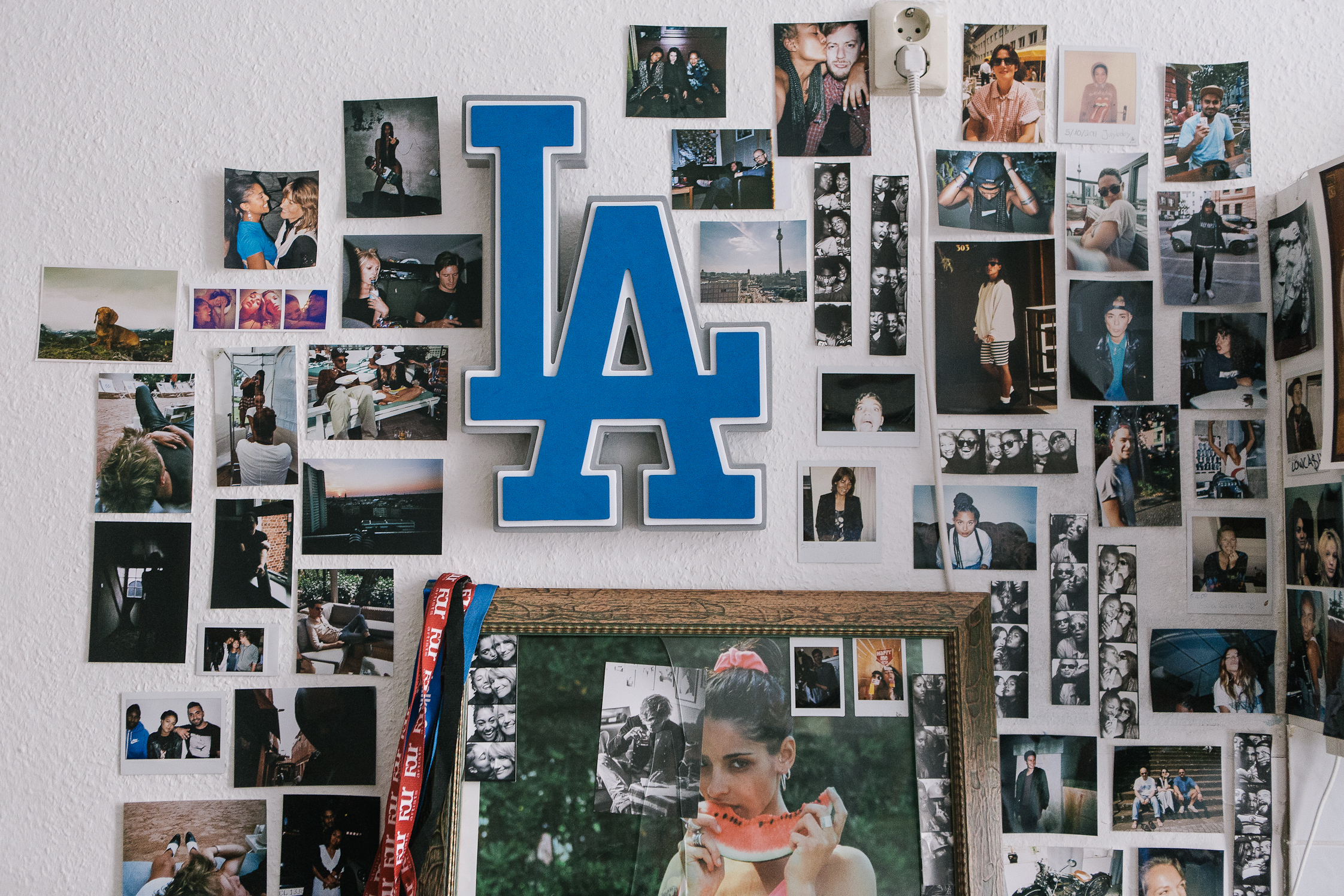
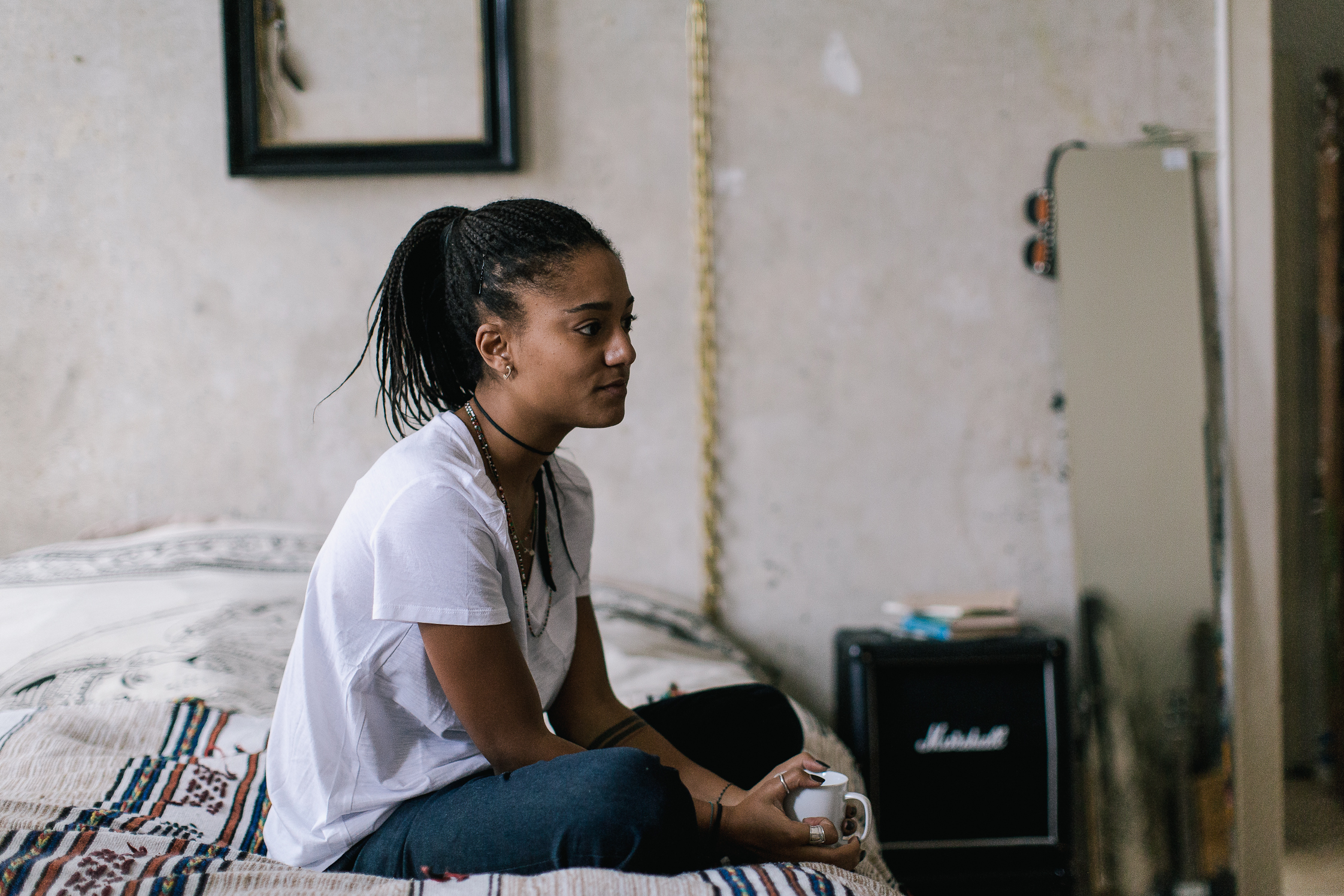
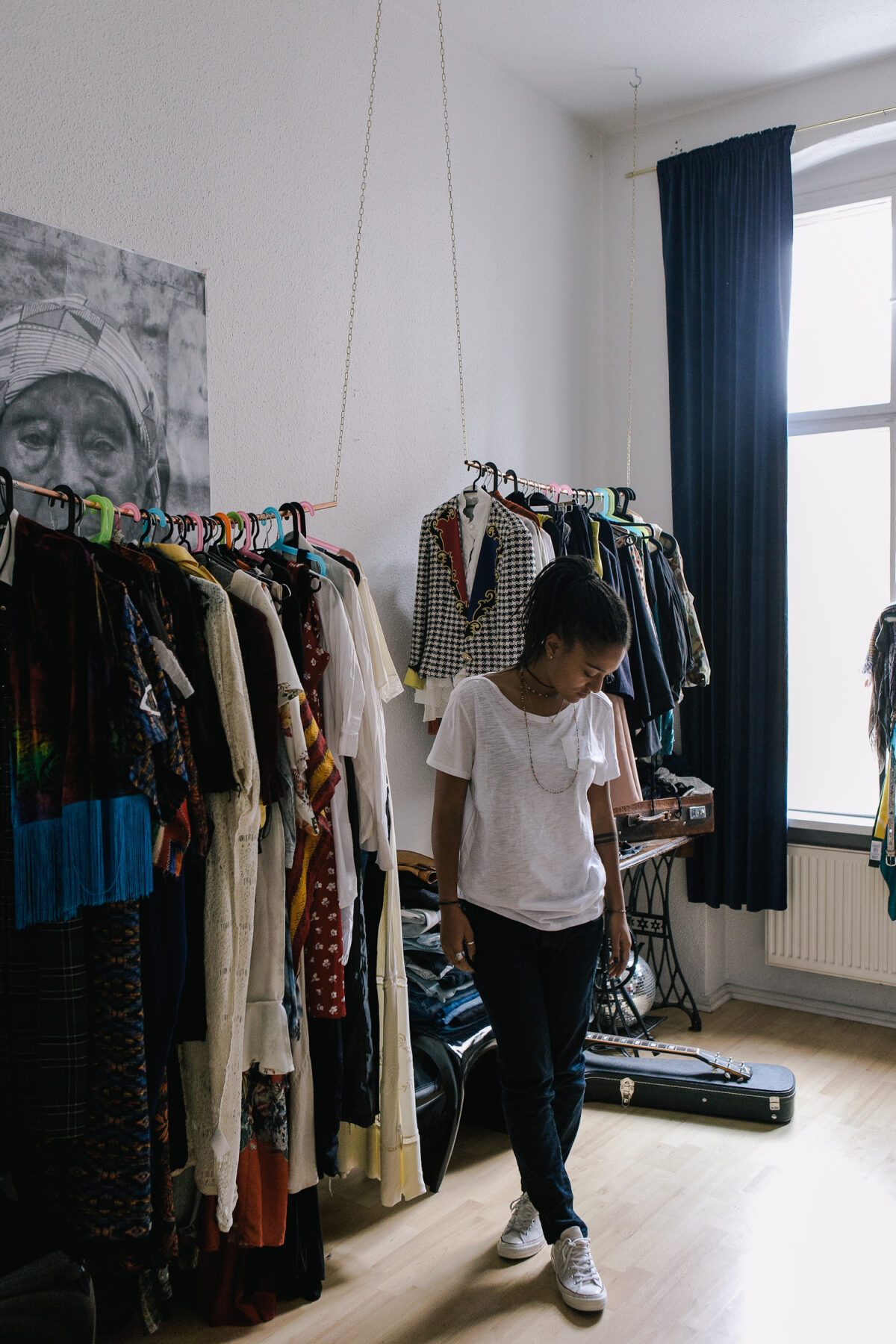
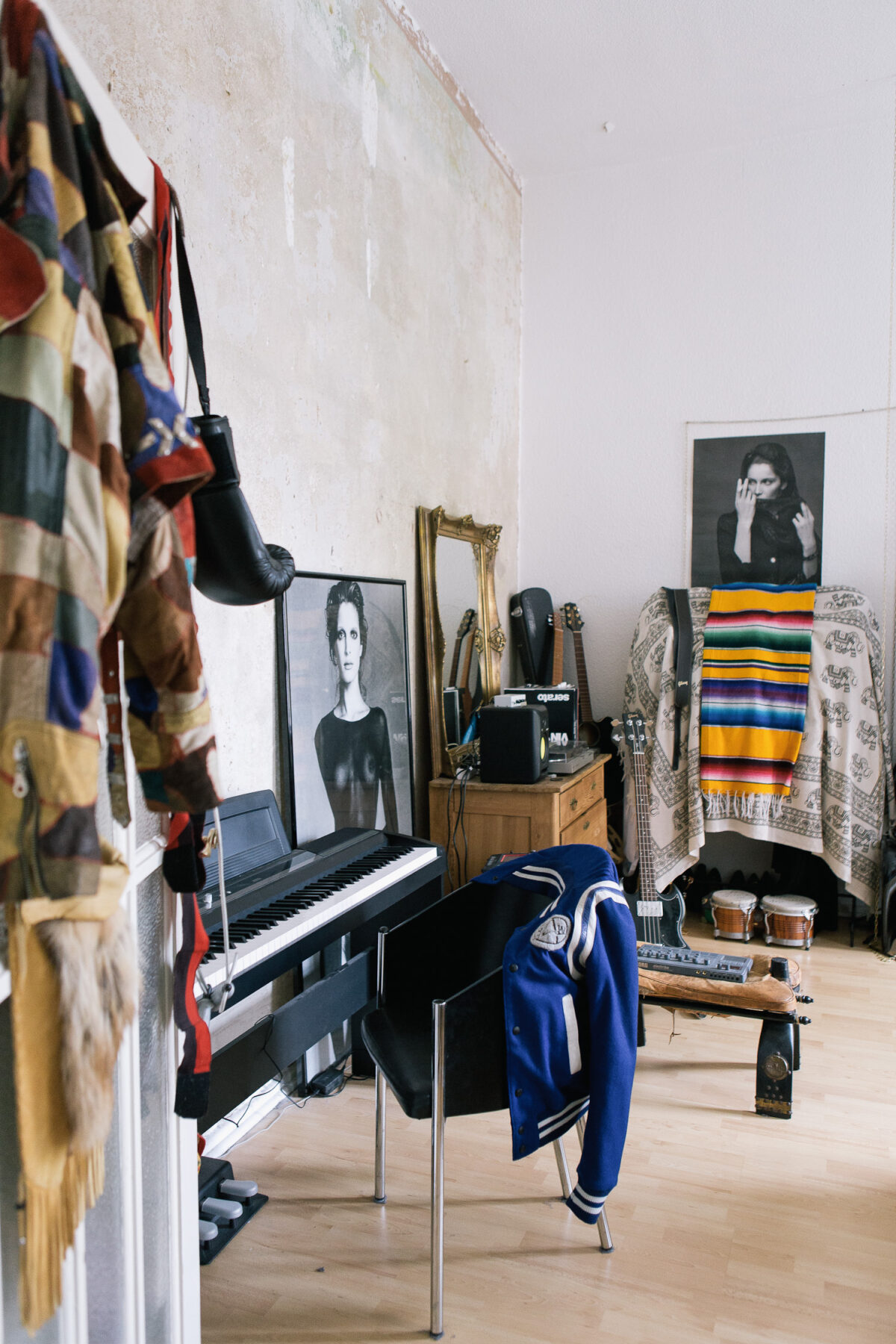
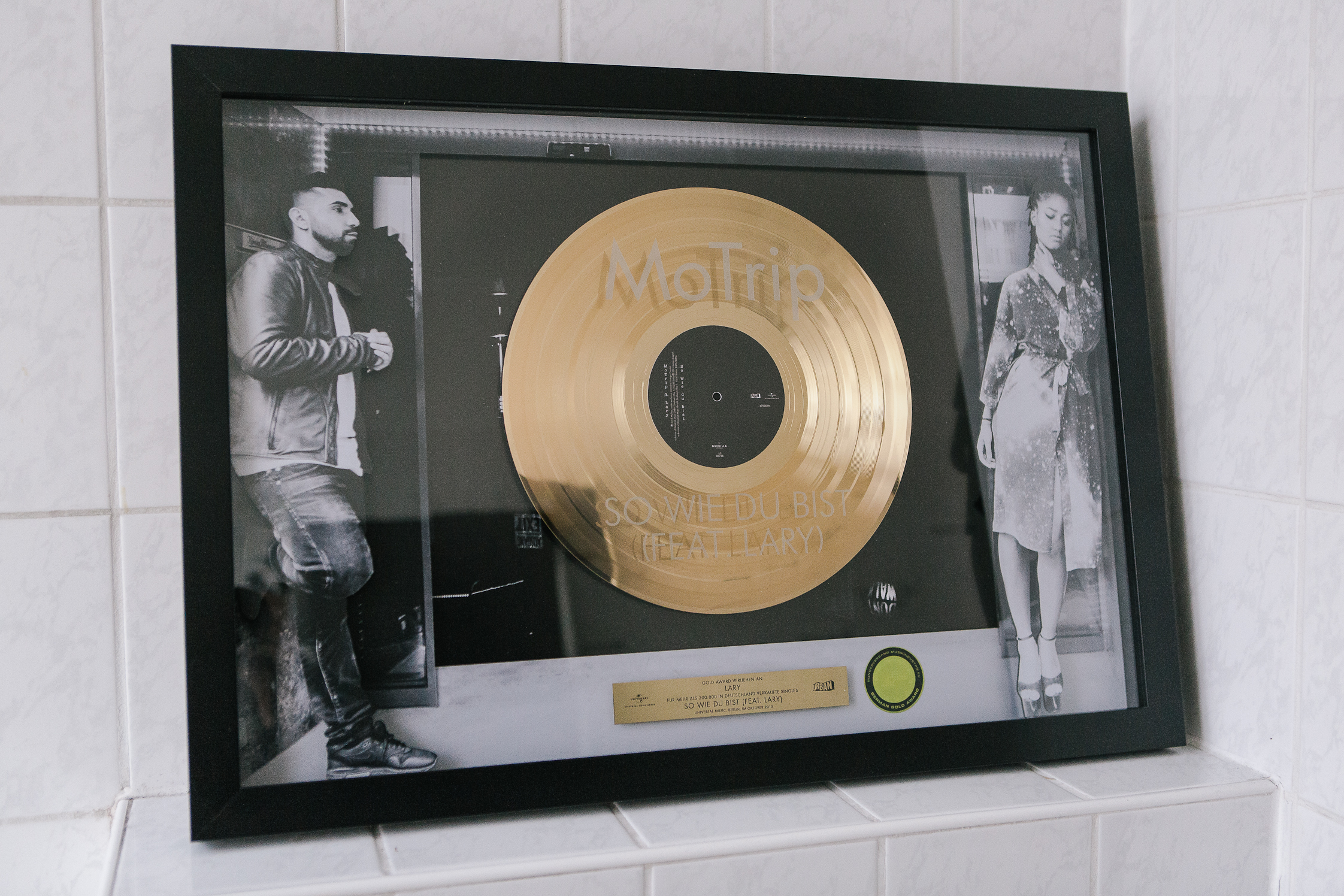
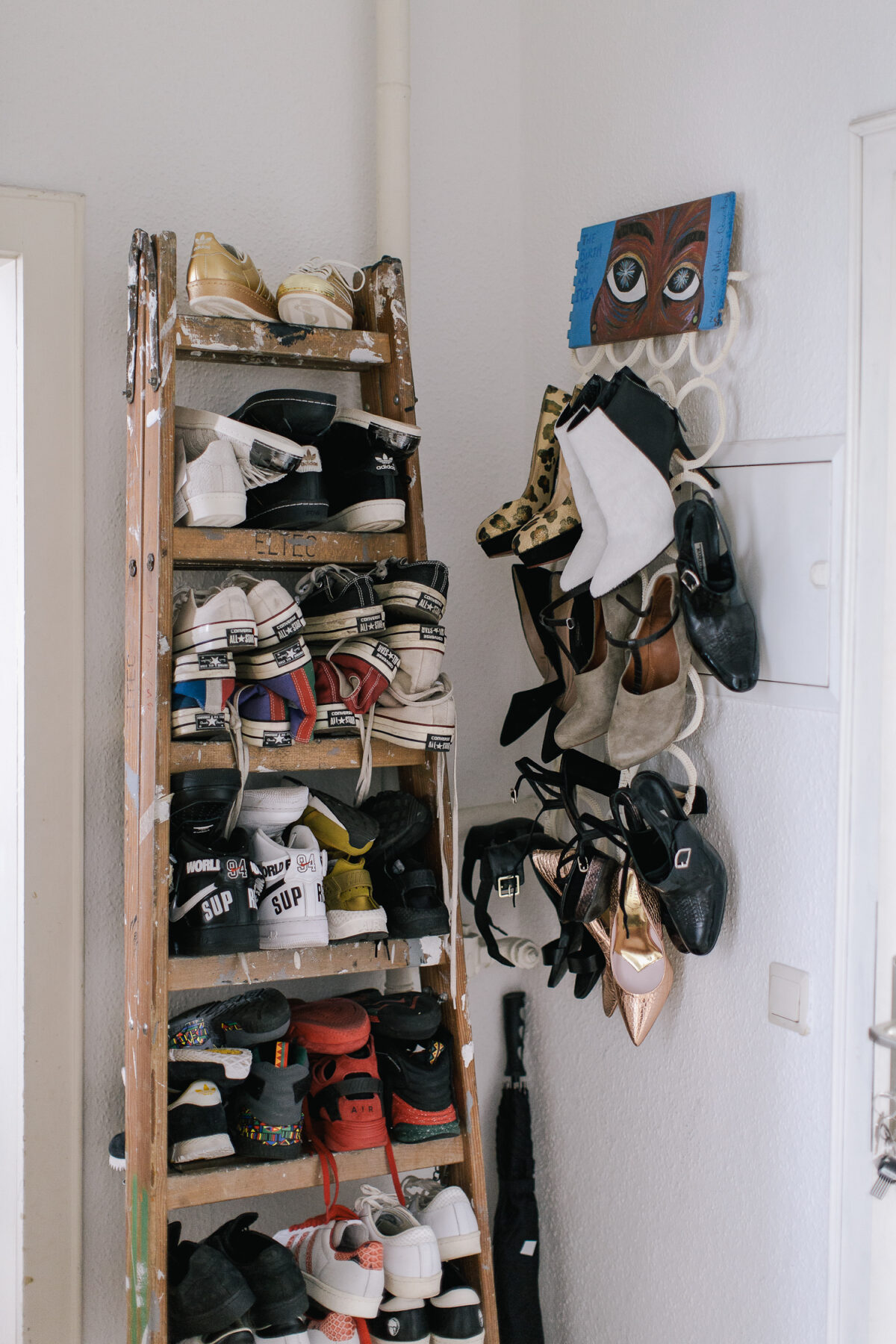
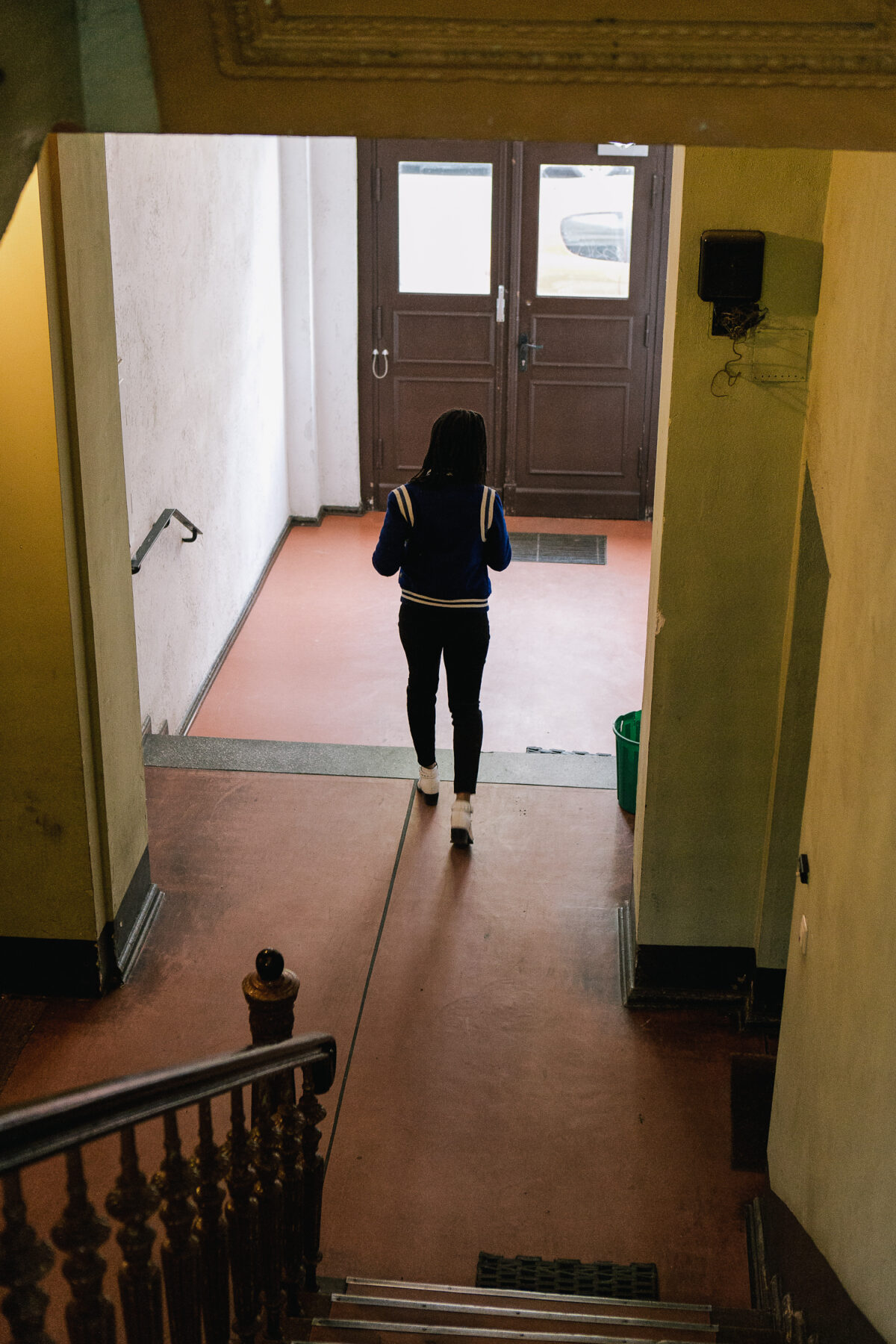
-
How do you go about writing songs? What inspires your lyrics?
My lyrics are a lot about how I think, what I’m into at the time. I’m influenced by the stuff I’ve read when I was younger. I love Nabokov. I think “Lolita” is the best book in the world. It’s had the biggest influence ever on me. I love Oscar Wilde and Bukowski, all those guys who didn’t fit in and had an amazing way of expressing themselves – an amazing authenticity. They reinvented themselves. They were very truthful and open, and very non-perfect.
-
There’s a bit of a coming-of-age theme in your last album “Futuredeutschewelle.” Is that something you still identify with?
So much has changed since the album came out. I feel like I am a completely different person when I listen to it. I think, Wow, I wrote that? I still identify with it because I know what phase I was in, and what and whom I was referring to. But I look at it differently now. Before it was a lot about finding and stating who I am not, now it’s more about stating who I am. It’s also about figuring out how perspectives constantly change. And being cool with that.
-
What’s the story behind your sound? It’s hard to classify the genre.
Musically it’s a very weird mixture. People always try to put you in a type of genre, I understand that. But it would be stupid to say I’m any of them. It’s not only pop, or soul, or electronic, or blues. It’s a mix of everything. I think that’s normal and how it should be with every artist. I mean, there are people behind the music and nobody is just one thing. We are so many things and so many influences, it’s weird to say, “This is the one thing I am.” People try to make songs that fit into a box. That’s really strange to me since I’m only trying to express myself. Or, actually, I’m trying to “get myself.” Because that’s really what I’m trying to do through writing and music: It’s figuring out what is actually going on with me.
I think every artist is very sexual. Creativity and sexuality come from the same place – even in the brain.
-
It seems the music industry likes to over-sexualize female artists. Does that sound familiar?
Yes. As a woman you really have to distance yourself from your sexuality – your womanhood – and, at the same time be super close to it. Really inhabit it. I wasn’t so aware of this before. I’ve always been very sexual, and it wasn’t really a conscious thing. But I’ve grown very conscious of it. I think every artist is a very sexual being. Creativity and sexuality come from the same place – even in the brain. I realize that being open about this, as a woman, is something that is very loud to other people, and they tend to not see anything else there is about you. As a woman, you’re either constantly demonized for being a sexual person, or you’re overly sexualized. It’s boring the shit out of me – to even make that an issue all of the time. But I even see it in myself. Sometimes I really have to flip a switch when I talk to somebody, and I realize, Wait, let’s just talk to this person like I’m a person, not like I’m a woman. Gender specific behaviour and patterns are so deeply ingrained in us.

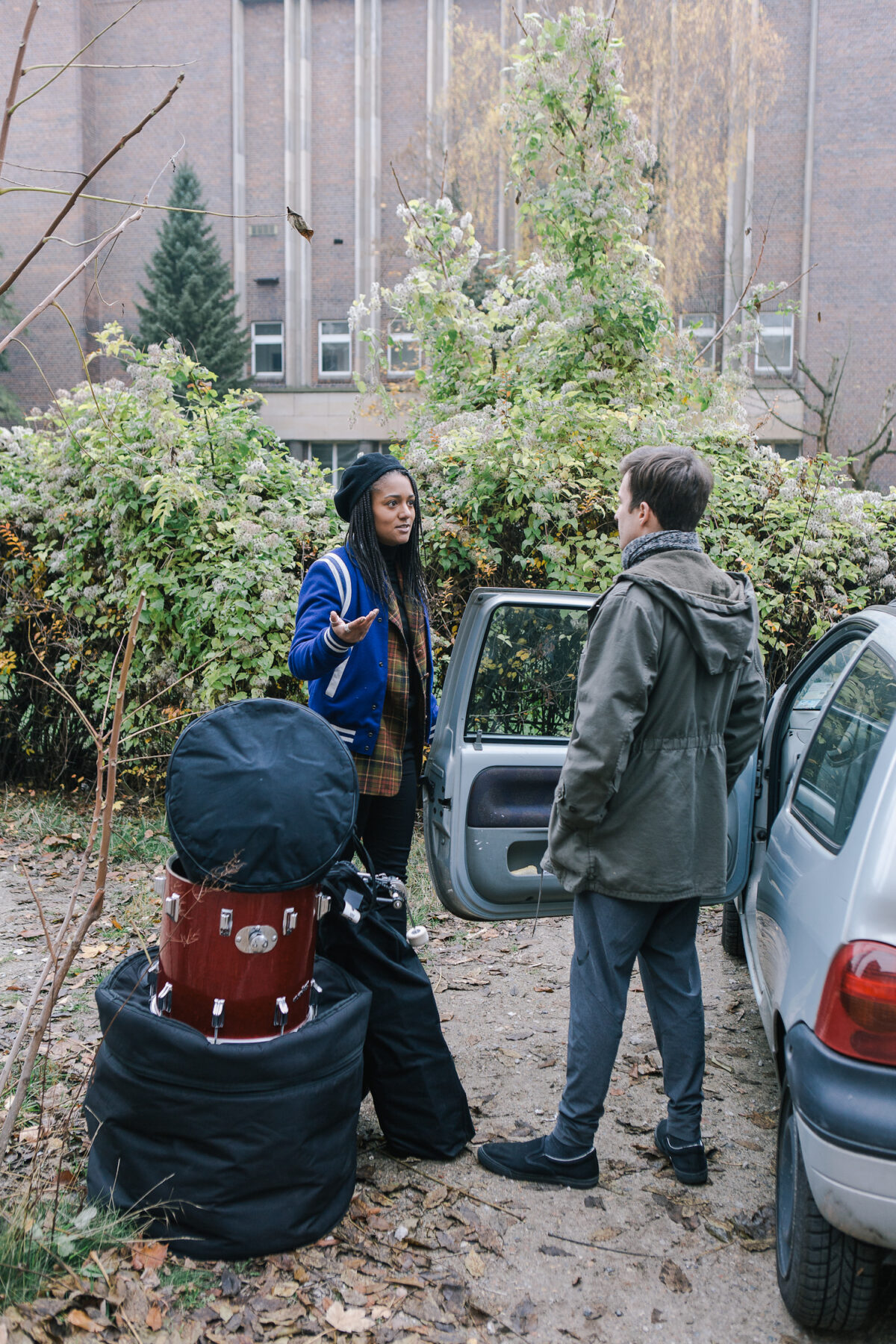
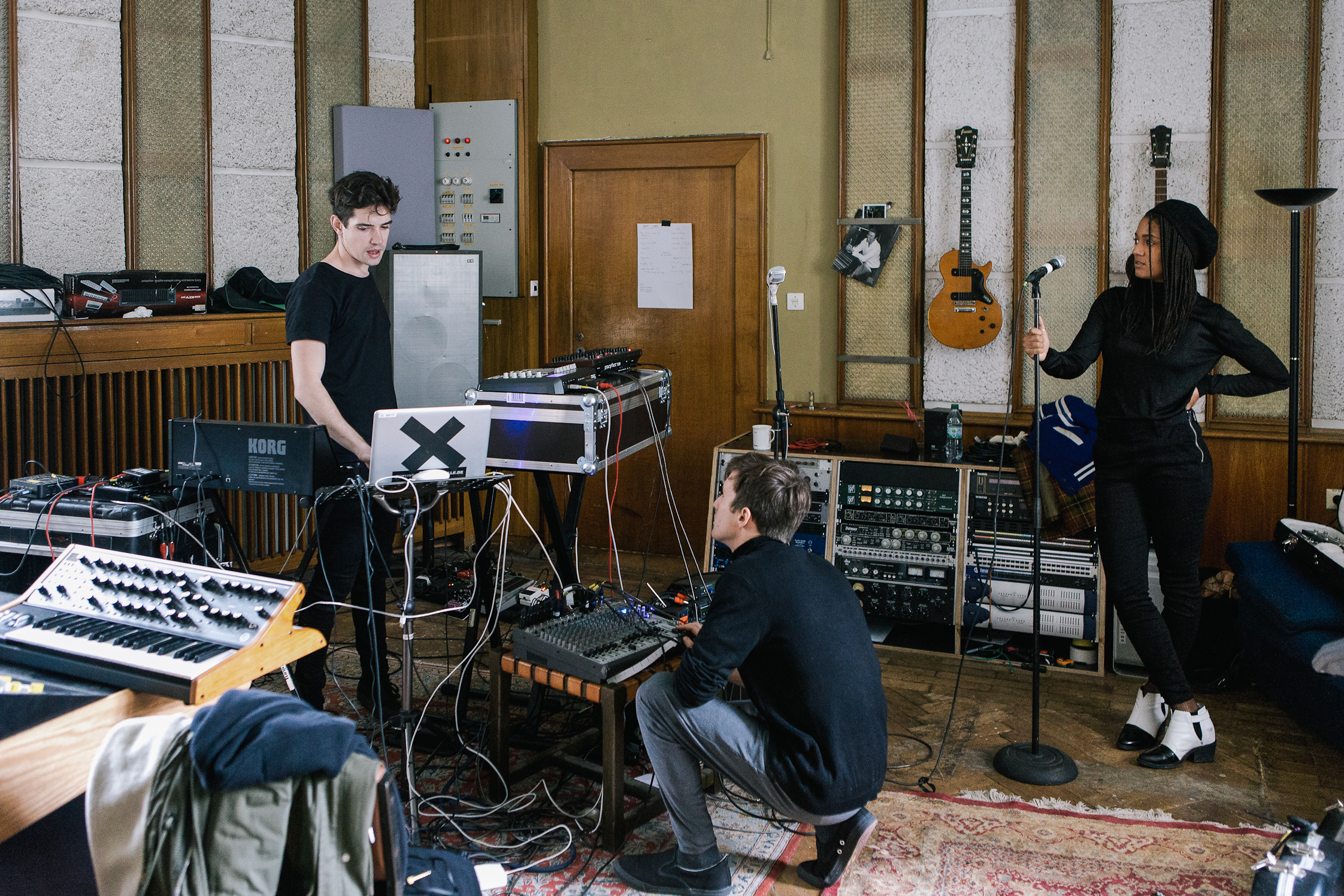
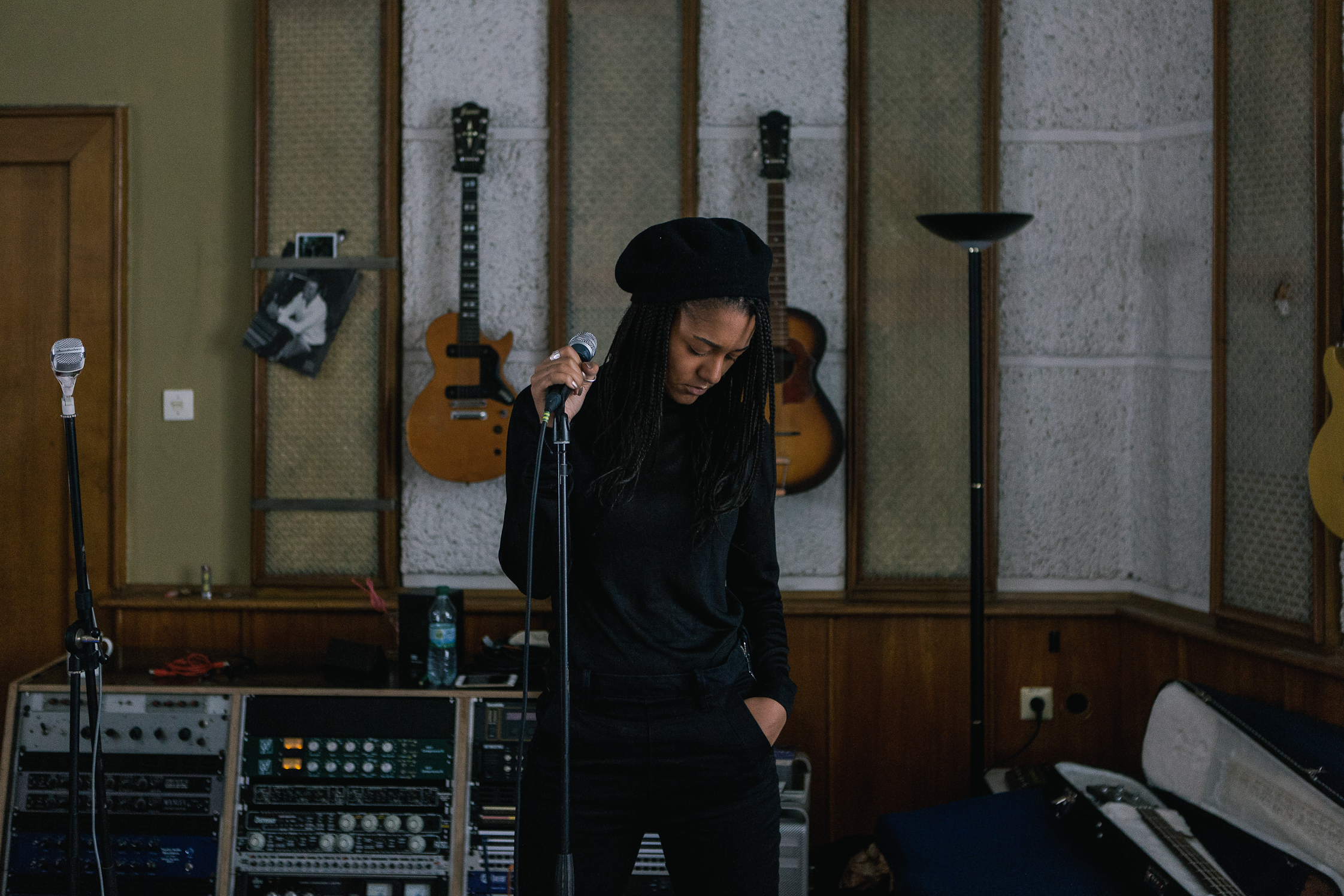
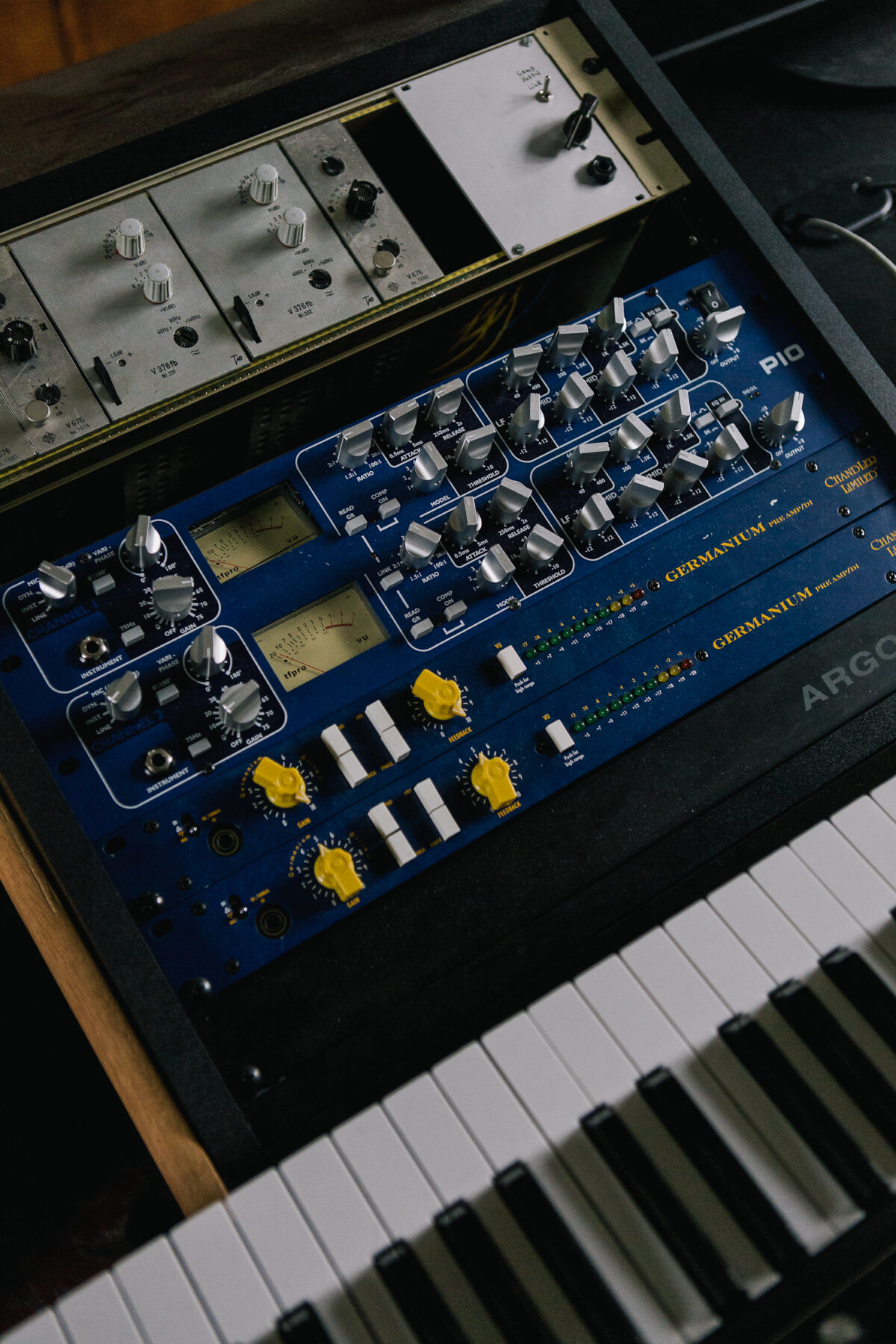
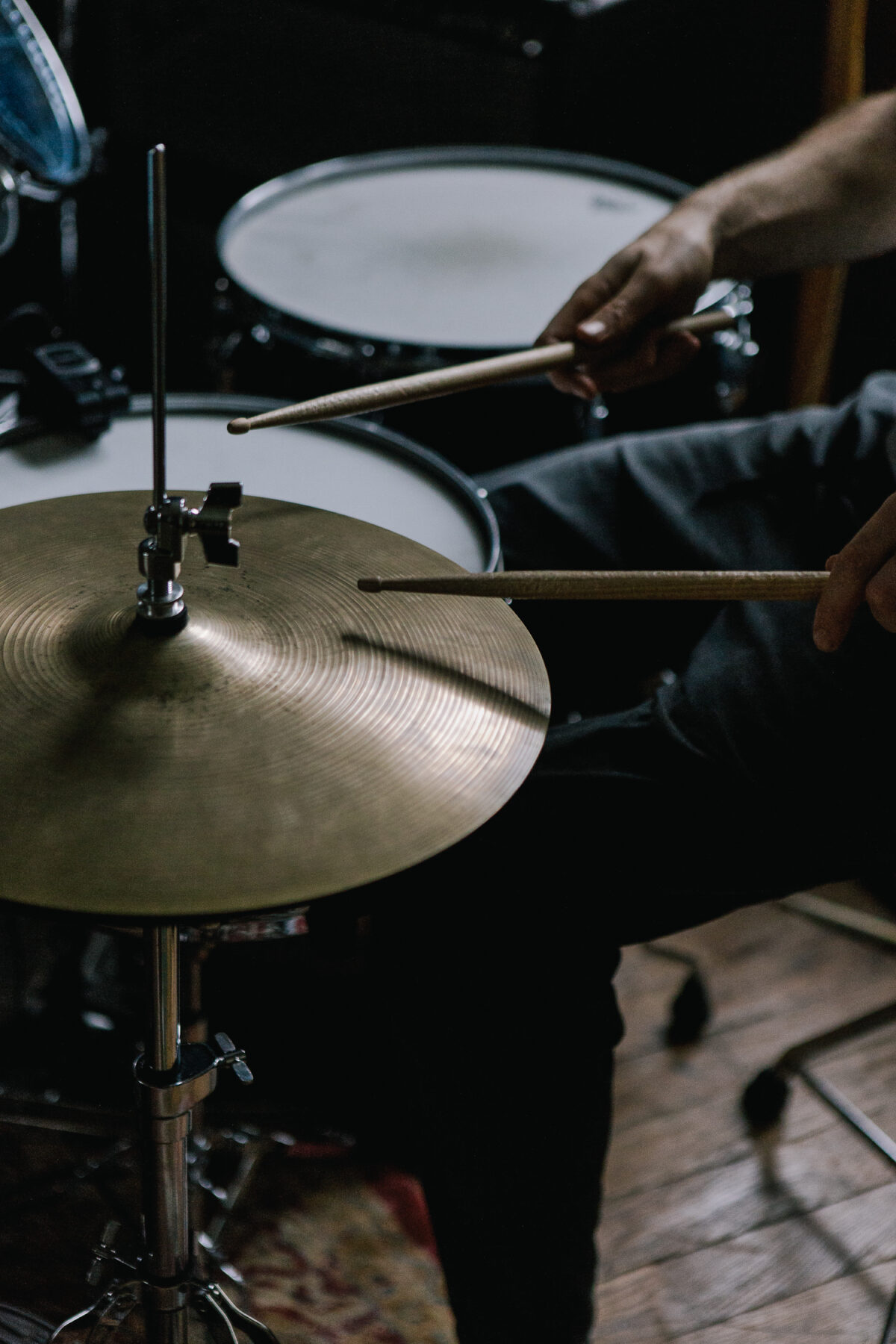
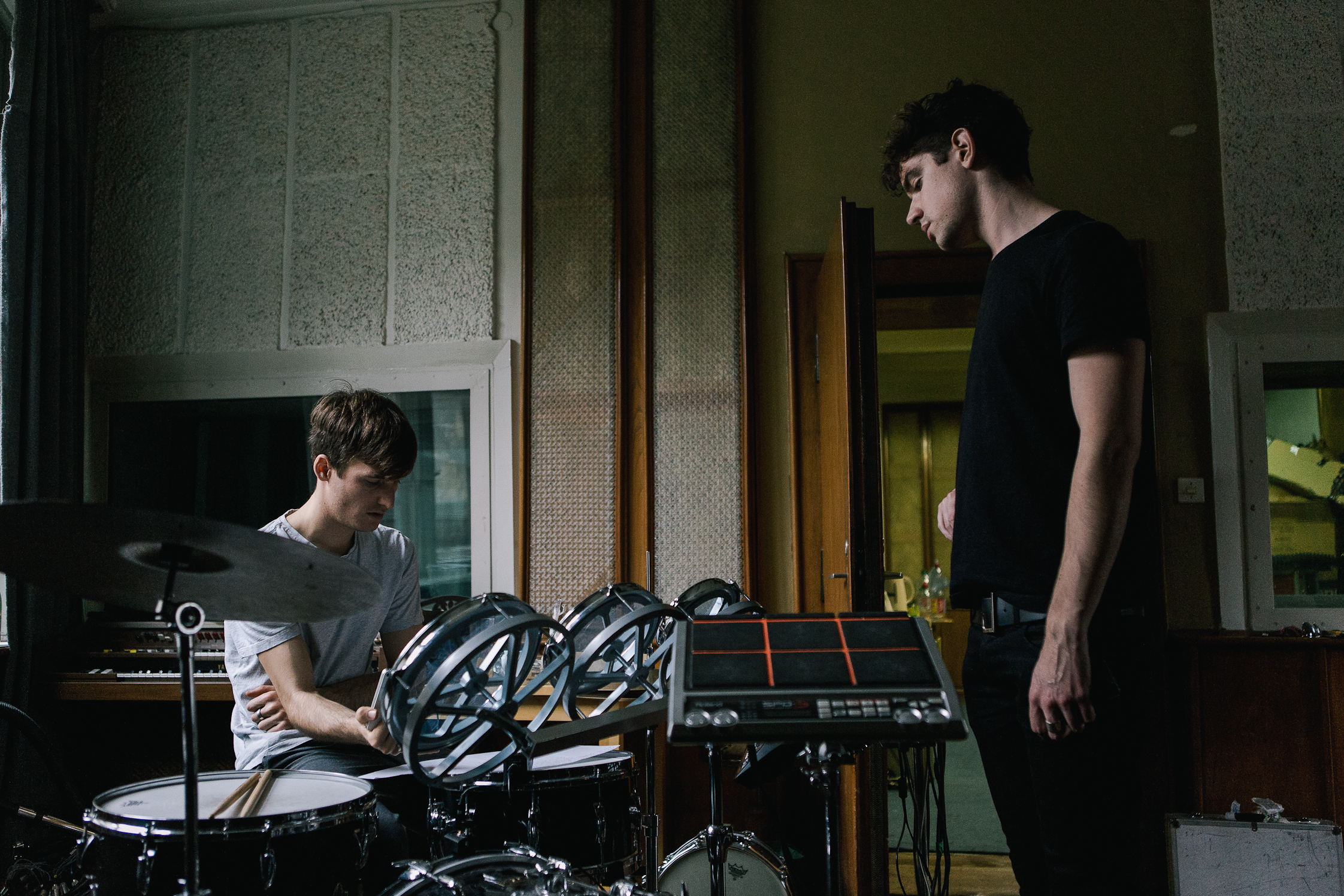
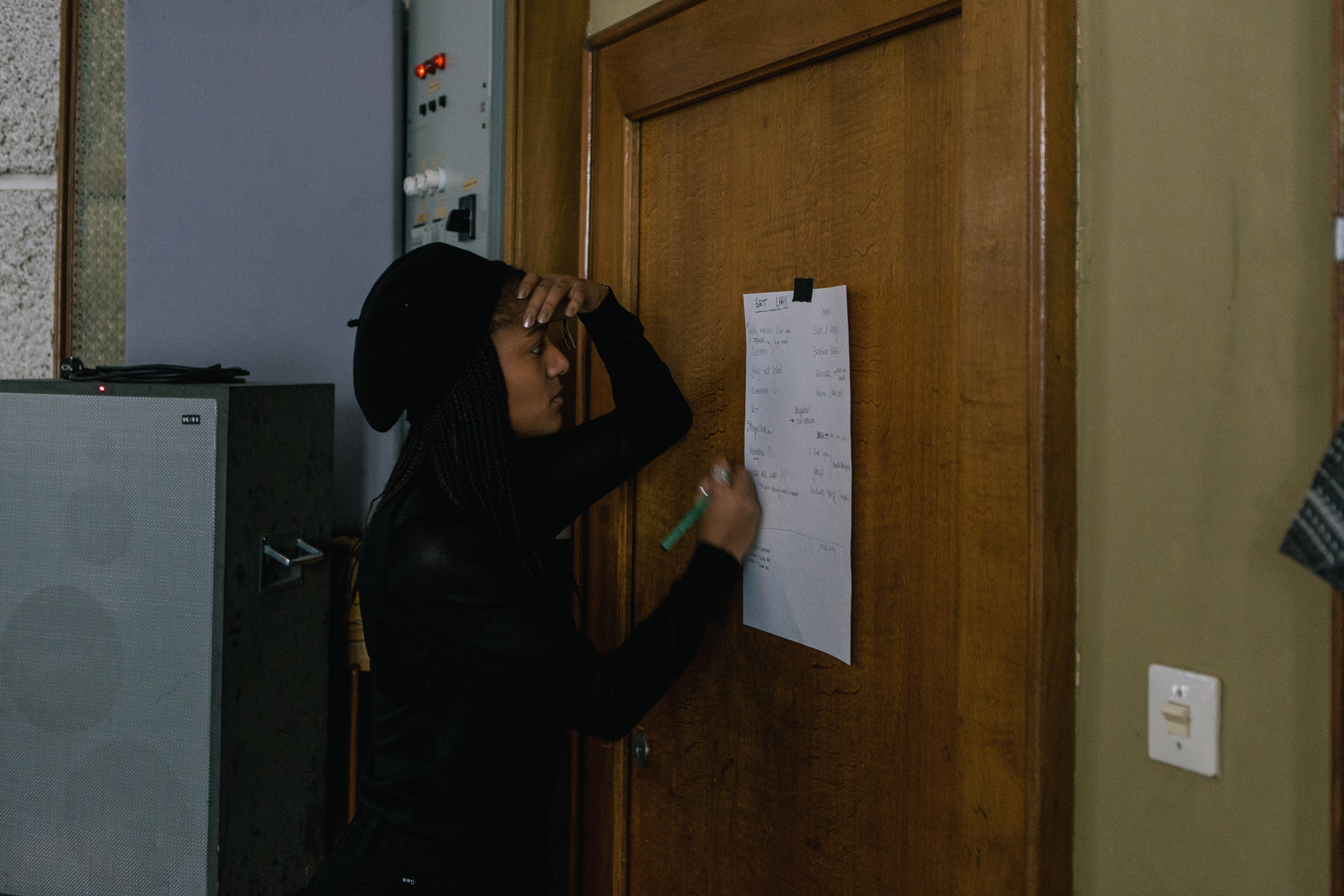
-
This goes hand in hand with the notion that women have to jump through a lot of hoops to be considered legitimate artists. Have you experienced this in your own career?
Absolutely. I realize the more sexual and feminine you are, the less likely you are to be taken seriously. I try not to give that too much thought, like: I can be a woman in whatever fucking way I want. But of course I am very aware of it. I think being an artist, and especially in music, I get away with a lot, especially clothing-wise. But at the same time, whenever I walk into a room full of industry people – who are 95 percent white males and 20 years older than I am – I have to kind of state that I am a person. More often than not, when you’re a girl you’re basically signed because you are a girl, and not because you’re an artist or because what you have to say is so amazing. It’s basically, “Oh, we can sell that you’re a girl.” It’s so sad and stupid. On the other hand, I think for me it is about being authentic and living up to my own standards, which is very subjective. It matters to me to be seen or liked by an artist that I like, or the type of media that I consider good or relevant. I won the New Music Award, and that was very good for feeling acknowledged and legitimate.
-
You’ve mentioned getting away with wearing whatever you want. What’s your stance on fashion and style?
I like clothes, I’ve been surrounded by fashion and fashion people since I was very young. My first job was in a streetwear store, so I’ve always been into street fashion and that culture – when it was still a subculture. It’s become very mainstream now, which is fine. But I’m pretty over streetwear. I did it for a long time. Now I’m more influenced by my mom, my family, and the ‘60s. I wear a lot of vintage. I have two or three jeans, which I wear when I want to be very classy. I go with blue jeans and a white shirt. That’s how I wear jeans. I like simple jeans, without weird washes or holes. I like worn out jeans, but when I myself have worn them out, not just anyone else. On stage I usually wear what I was wearing all day. On stage is where I feel the most like myself, so I’m always kind of yearning to be on stage – to be myself.
-
You’re working on your second album now. Where is your career headed at the moment?
I thought about this yesterday, I have no idea. I am not sure if I fit in in Germany. Everything that is commercially successful, you can pinpoint in a second. It’s very easy and understandable and very sing-along-able. I think I am more the kind of artist you have to get into and understand, so I’m either going to create my own thing or not at all. I feel like I’ve changed a lot and still am, so I am kinda just watching myself and rolling with it. My whole attitude toward music and toward the business has gotten a lot more, Fuck everyone, I’m going to do what I feel like. I’m not stupid. I mean, I know I just had a huge commercial hit, and I’m not going to go off the cliff and do art music. I am still a pop musician, and I love doing it. But I cannot do stupid music. I can’t change that even if I tried. It’s not that I wouldn’t want to have a huge commercial success, but it’s either going to happen naturally or not at all. They call me the “Hit Stopper” at the studio. Whenever a song has the potential to turn into a hit, I do something that makes it not a hit. I am working on that, I just don’t like compromises.
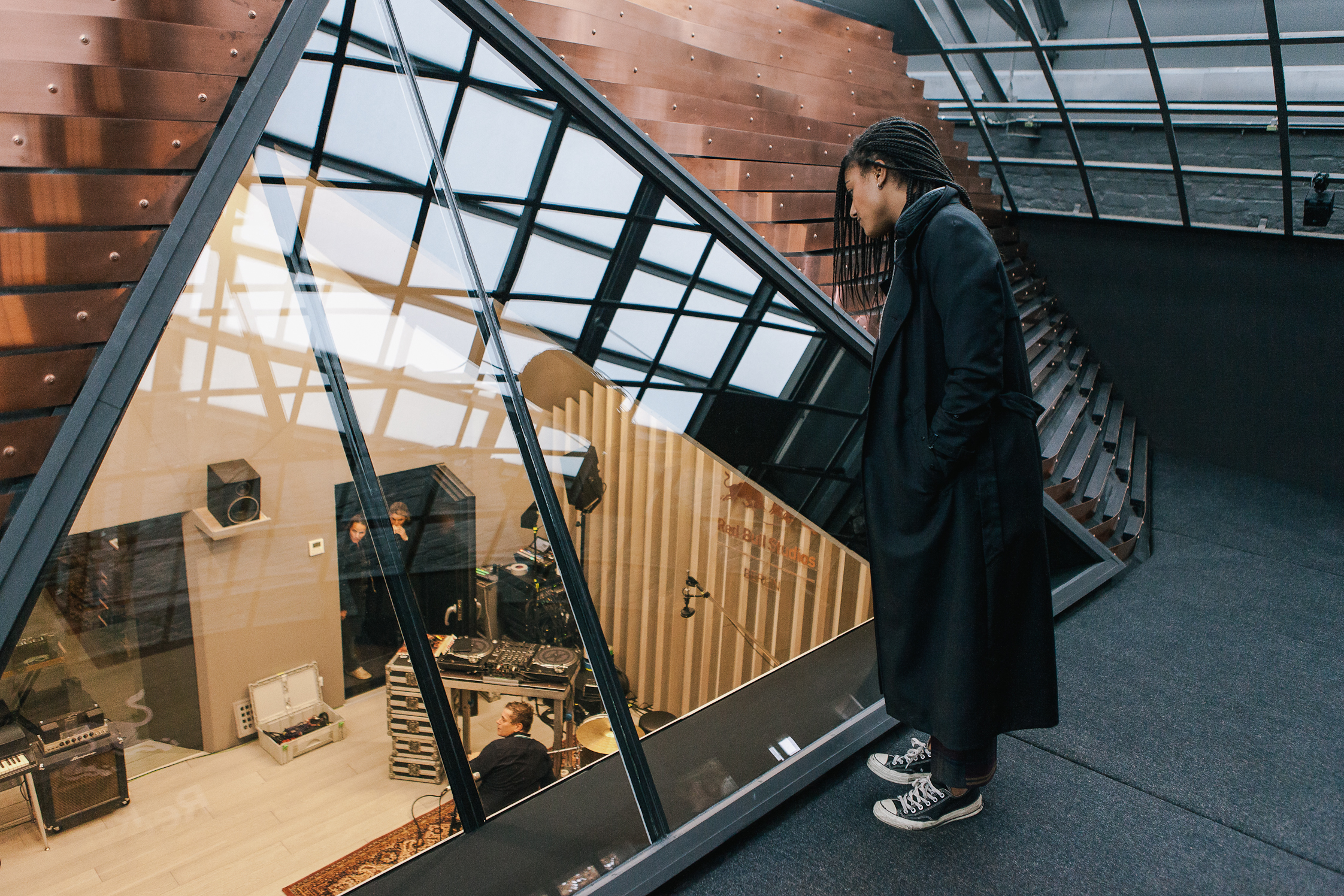
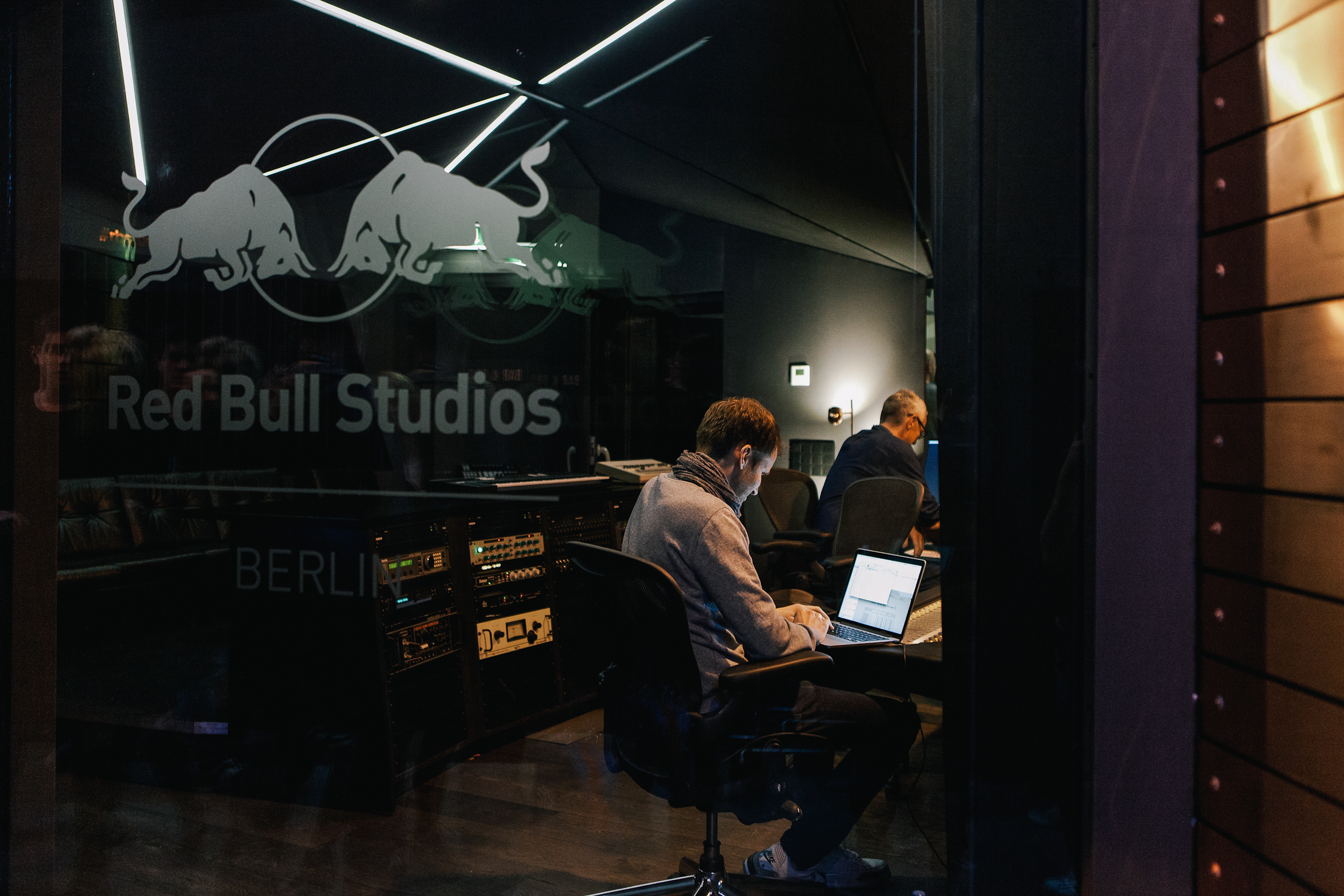
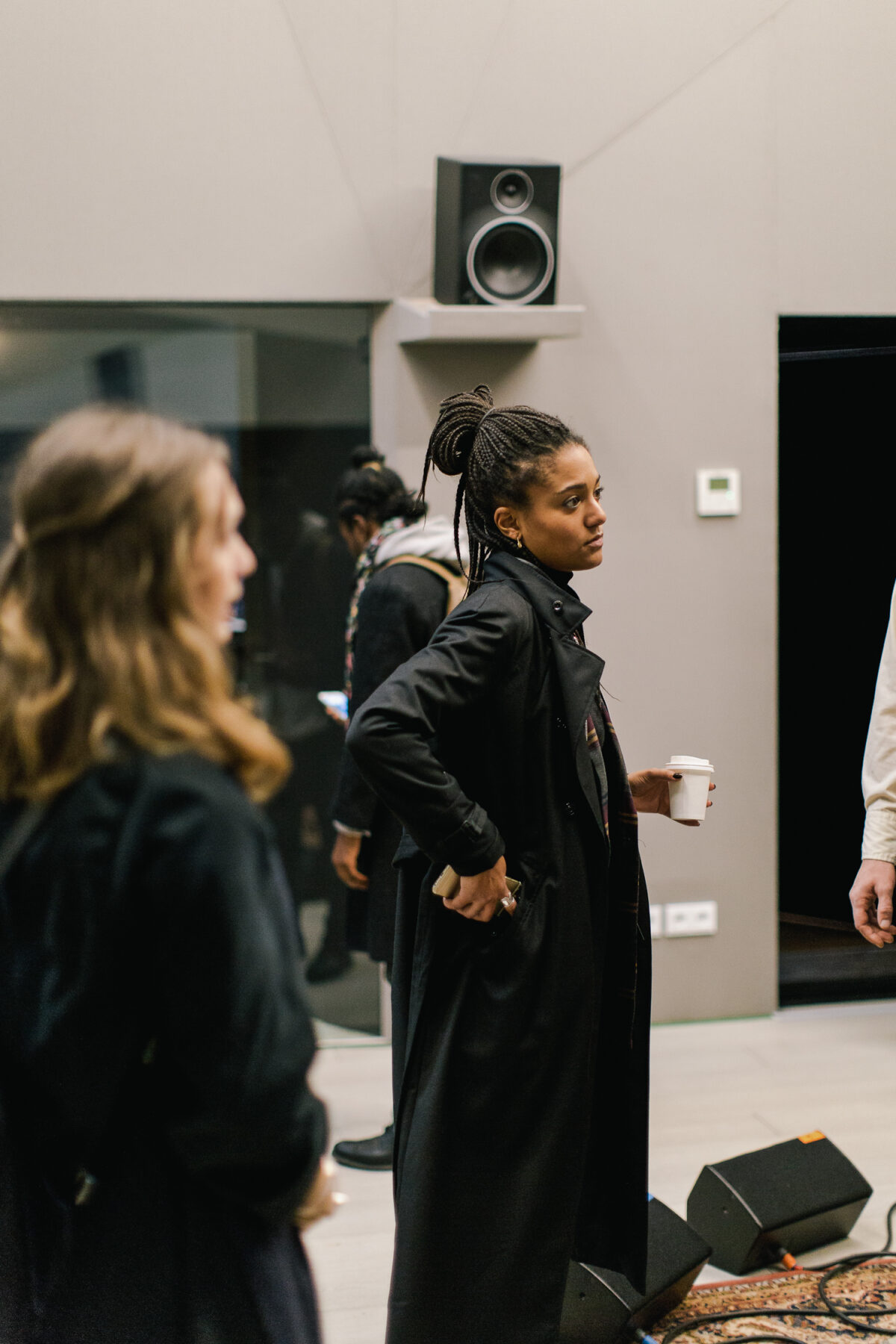

-
It sounds like you’re straddling the border between success and self-expression. Does that sound about right?
Yes, it’s so important to be authentic – I mean, that’s all you have. If you’re not, you end up having an audience who likes you for one certain thing, but maybe that thing has never been you, or it is something that other people created for and with you. And I see that in other artists. They’ve been very successful, but at some point you want to evolve from that, and if you have that audience, you won’t and you can’t. I mean you can, but you’re going to lose that audience and success. So I’d rather take it slow and build an audience, because I know there are people out there who love music, and I know that what I do is good.
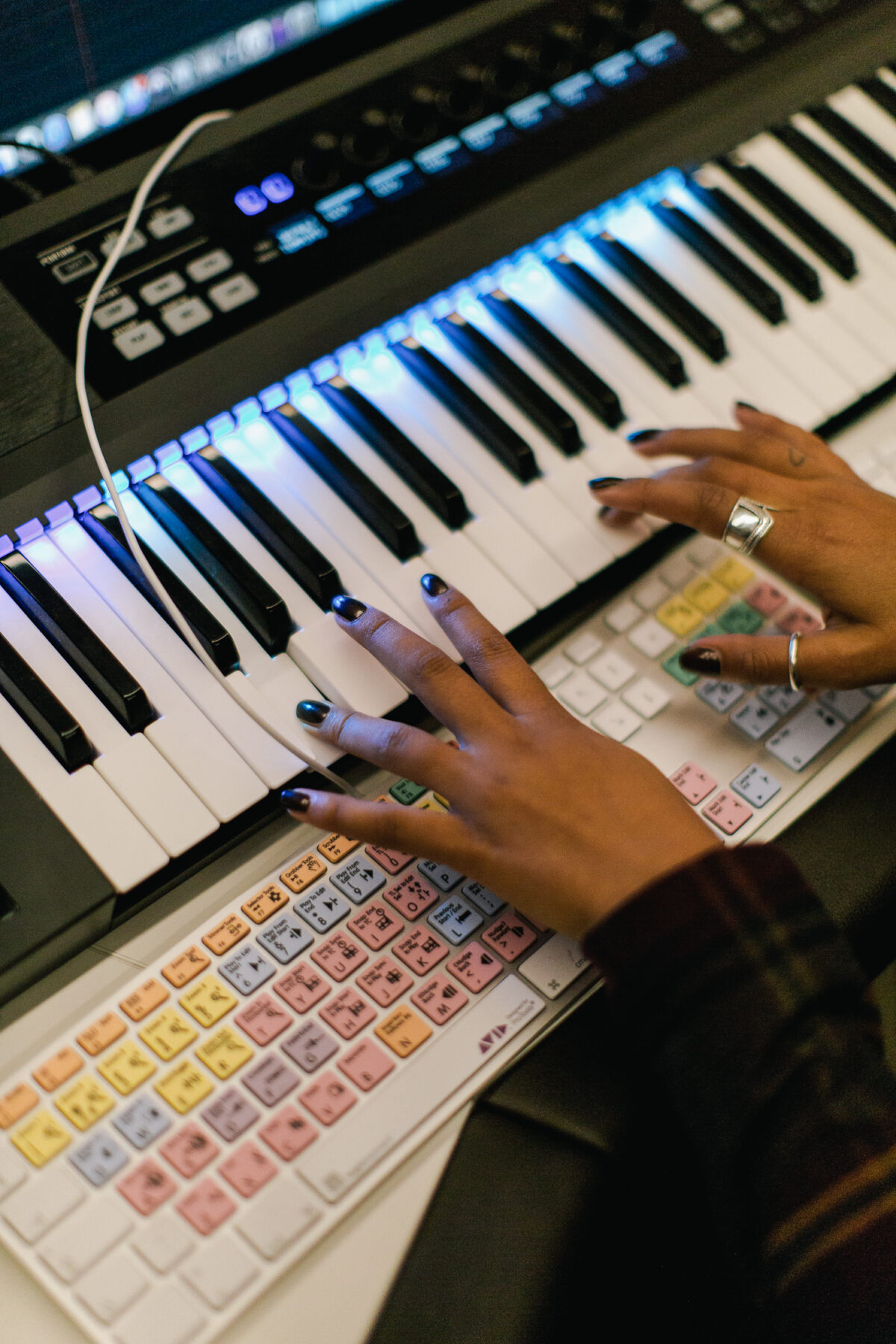
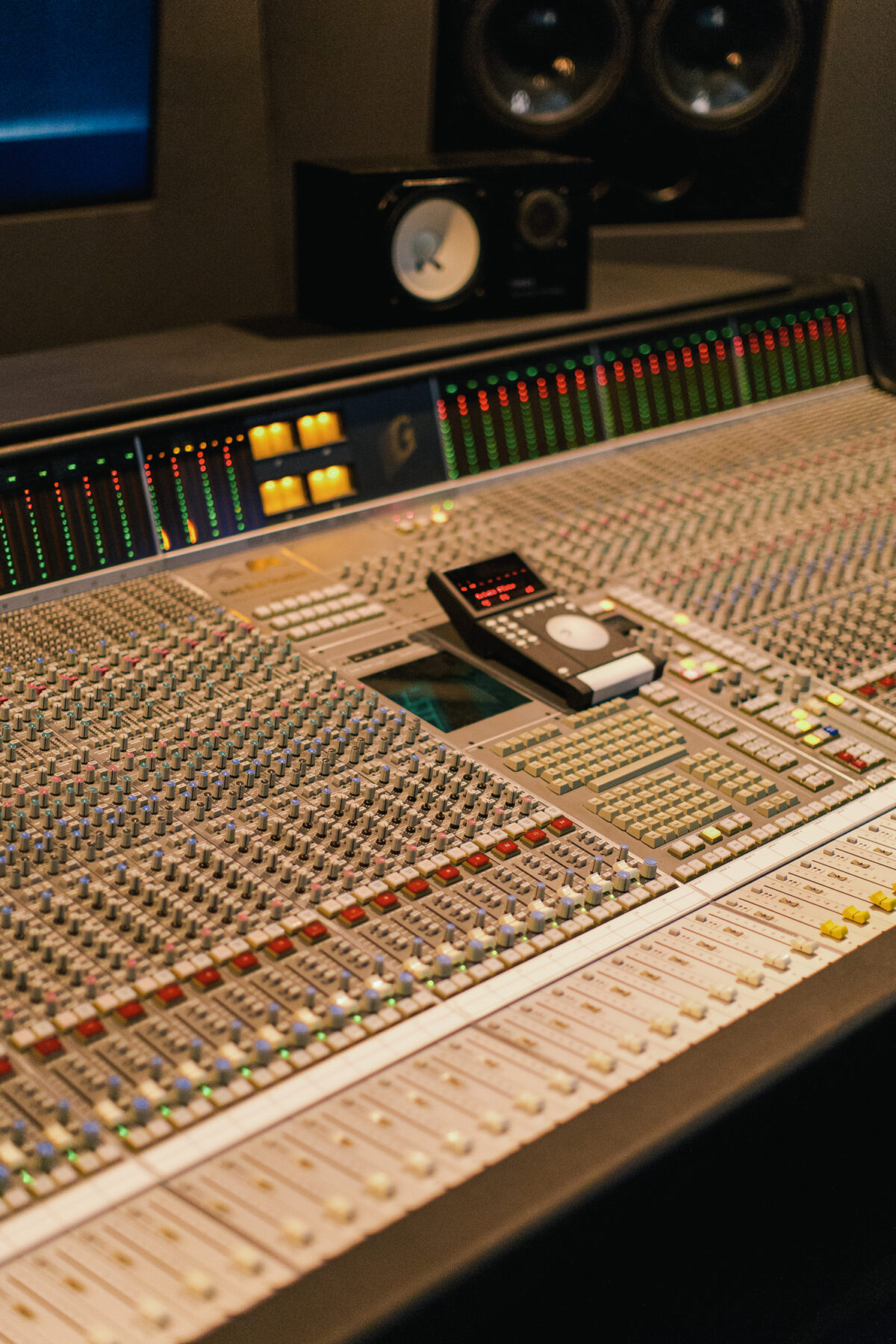
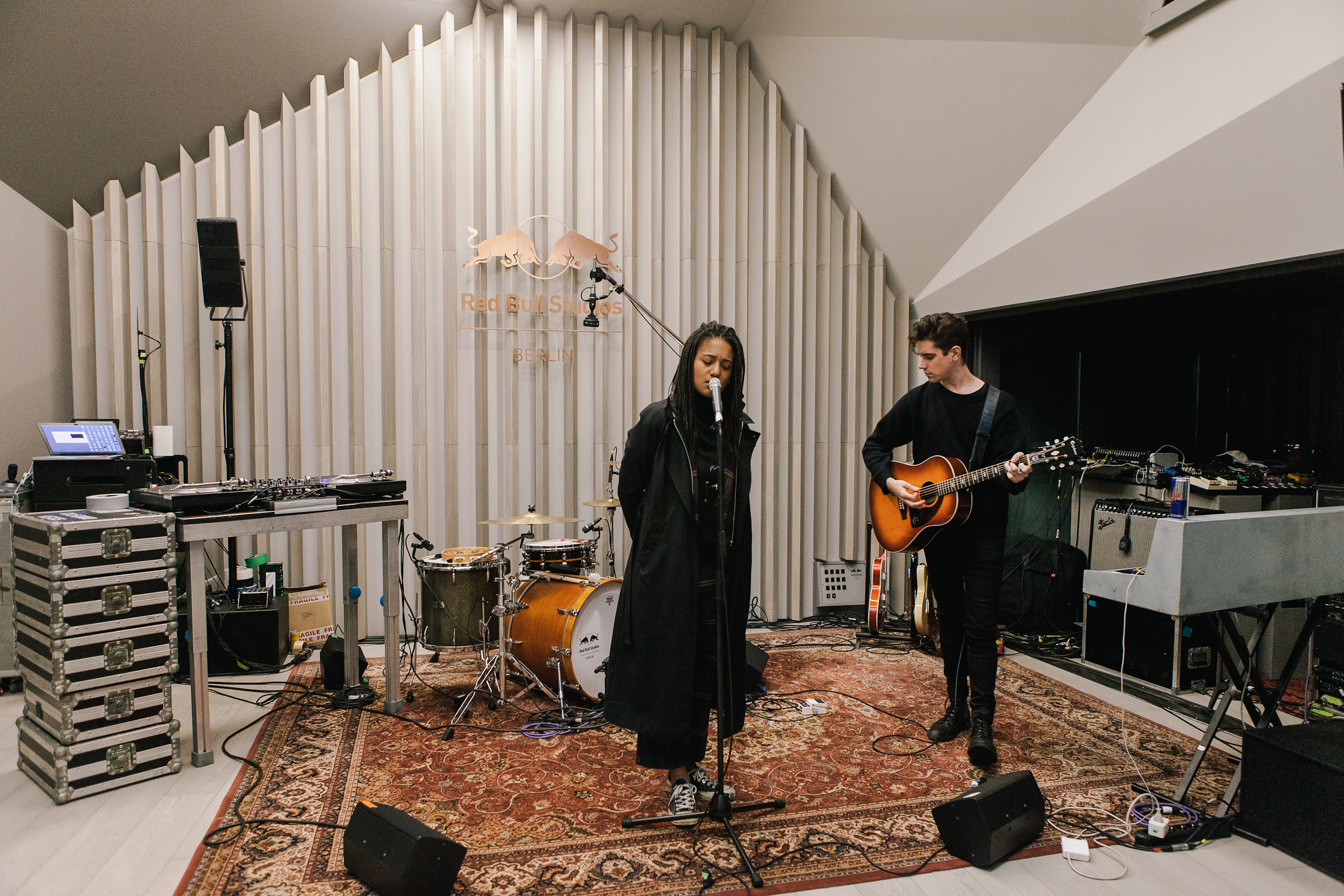
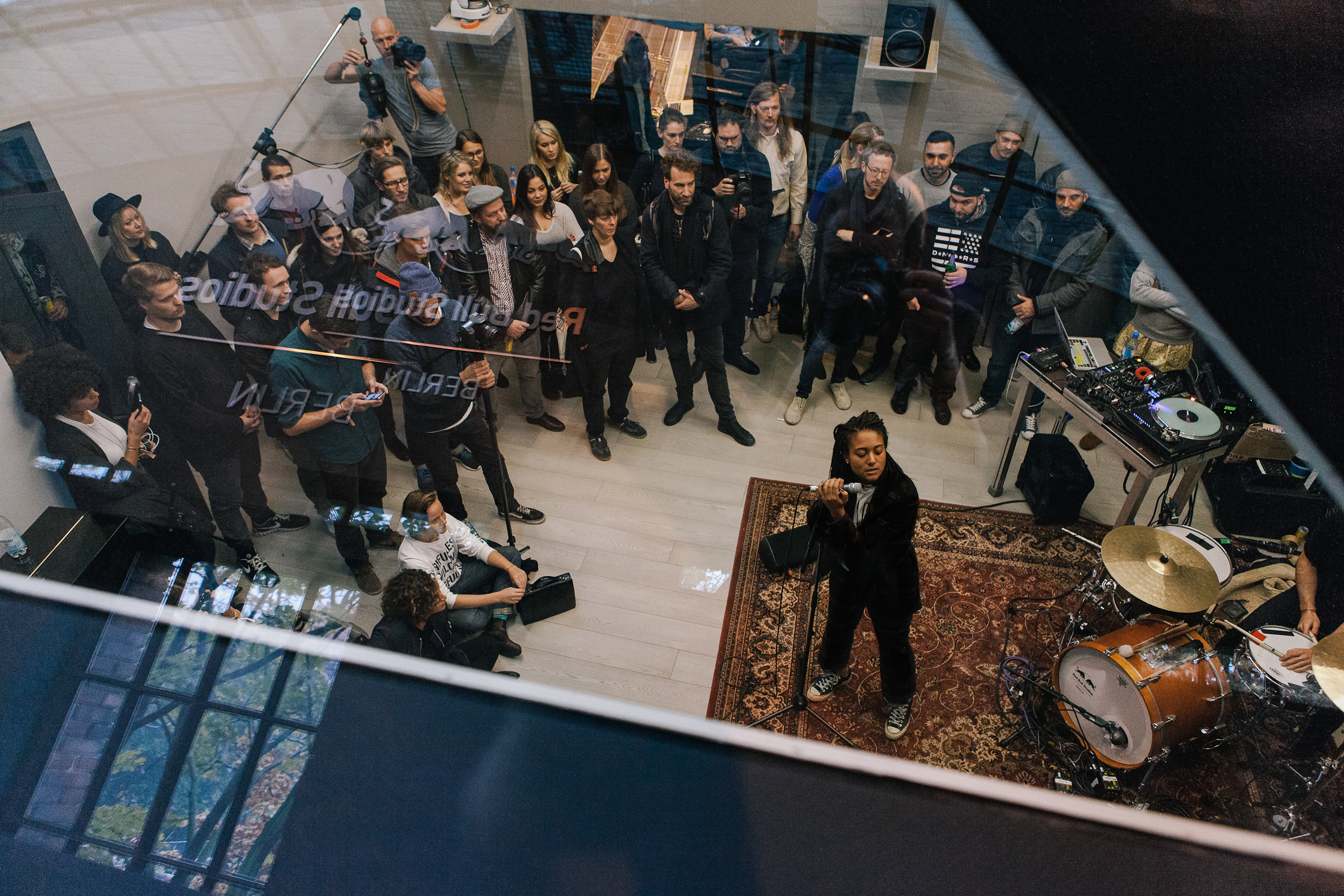
Thank you for this delightful, insightful chat, Lary. It was a pleasure meeting you, your faithful houseplants, Goethe and Milo, and getting a look inside your beautiful home.
Check out Lary’s current tour dates here.
This interview is part of our collaboration with G-Star RAW which introduces us to intriguing creatives across the globe, gaining insight into elements of their personal style. The portraits are part of the “How Do You Wear Yours?” campaign that champions how people wear their jeans and dress around the world.
Photographer: Fabian Brennecke
Interview & Text: Jennifer-Naomi Hofmann

